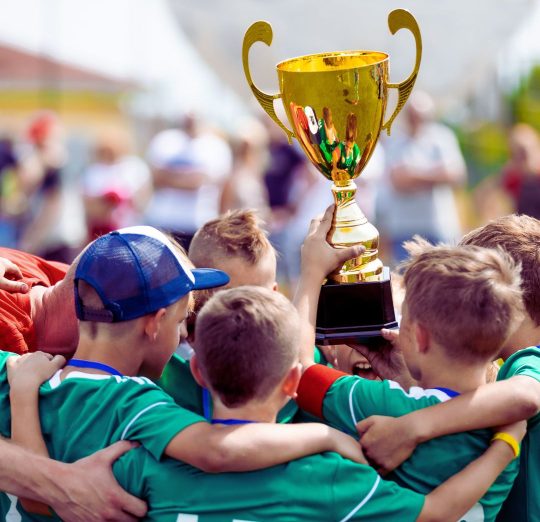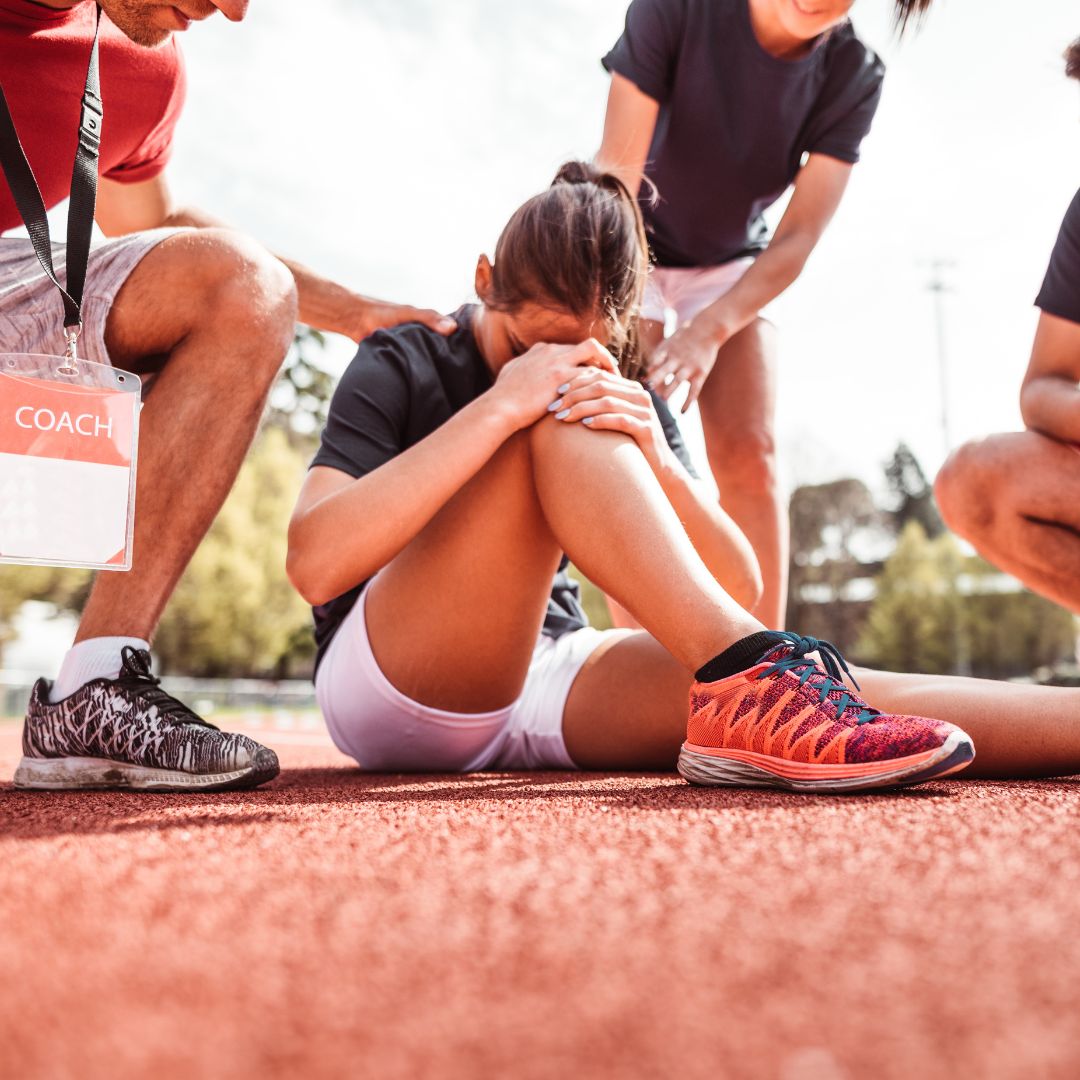Sports Psychologist in Philadelphia, PA
We train the other half of the athlete
You want to work on your mental game, but how do you train your brain?
Mental training does not get much media attention, but at MindBalanceSPORT we know it is a game changer. The mental skills you will learn at MindBalanceSPORT are generalizable in the classroom, in sport and in life!
We know that mental skills can be successfully taught, even at an early age.

Our Services
Meet the Team





testimonials
Athlete Stories: Real Comebacks, Real Results

Emma, a high school basketball player, tore her ACL in the middle of her junior season. After surgery, she struggled with self-doubt and fear every time she stepped back on the court. Through sport psychology training, she learned visualization techniques and confidence-building exercises that helped her regain trust in her knee. When she returned for her senior season, she didn’t just play—she led her team to the playoffs.

Carlos, a soccer player, suffered a stress fracture in his foot and had to miss half of his season. Sitting out was mentally tougher than the pain itself. We worked on mental engagement strategies to keep him sharp—studying game film, setting small rehab goals, and using mental imagery to stay ready. When he was finally cleared, his confidence never wavered.

Jordan, a track athlete, strained her hamstring before a major competition. She feared losing speed and falling behind competitors. Instead of focusing on what she couldn’t do, we redirected her energy toward mental preparation, using self-talk and goal setting to keep her confidence strong. When she returned, she set a new personal record.
EXCELLENTTrustindex verifies that the original source of the review is Google. It was a great help to my 14-year-old competitive volleyball player daughter. Raven was great to understand and connect with her from start to end. We will continue with our sessions as needed.Trustindex verifies that the original source of the review is Google. Great results! I’ve loved working with Paula. Our sessions have greatly improved both the physical and mental aspects of my tennis game. I’m playing better and having more fun! Highly recommend!Trustindex verifies that the original source of the review is Google. Our family had a wonderful experience with Paula Castro. We needed some additional confidence in a particular area/sport and Paula helped get us there. We know who to turn to if we need help again. She’s been a Blessing. Thank you, Paula!Trustindex verifies that the original source of the review is Google. I highly recommend MindBalanceSPORT. Our son works with John Howard. John is very caring, positive, and effective at working with teenagers. John is an adept listener and created an individualized plan tailored to our son’s personality. After just a few sessions with John, we noticed a significant improvement in our son’s motivation and mental approach to sports and life in general. Our son looks forward to meeting with John and tells us that he benefits immensely from their connection.Trustindex verifies that the original source of the review is Google. Paula Castro is an outstanding professional on the field. She has helped my daughter improve her confidence, preparation, and thanks to these session she feels more prepared and motivated. Paula takes the time also to share (what she can) and align with us as parents to be on the same page. Strongly recommended!Trustindex verifies that the original source of the review is Google. MineBalanceSPORT has quickly become the area's expert in sports psychology. Their reputation is well deserved given their incredibly thoughtful, scientifically based approaches to treating performance-related conditions, and I have only heard glowing, positive feedback from those who have engaged in their program. I will also add that Drs. Jones and Chirby presented to us (our group comprises of 15+ doctors and masters level clinicans) about their program and impressed us all with their level of expertise and passion for this field. I give them my highest recommendation.Trustindex verifies that the original source of the review is Google. Dr. Jones was beyond helpful to me throughout our time together. If you are an athlete and you need advice or assistance this is the place to come to. She completely changed my outlook and mindset in a time when I needed her most. I look forward to staying in touch with her and am forever thankful for her expertise.Trustindex verifies that the original source of the review is Google. Paula has been a huge help with my daughter Morgan coming off her injury. It’s been 18 months since she’s played basketball and she’s thriving because I know Paula is guiding her the right direction. As a mother, I’m extremely gratefulTrustindex verifies that the original source of the review is Google. If you are looking for Amazing Psychologists who can help support you in your sports performance, you need to call MindBalanceSPORT! Dr. Chirby and her colleagues are a wealth of knowledge, they have so many helpful techniques for mind balance, and they have so much compassion for the communities that they serve! Highly recommend!!!
Recovery
While Everyone Has A Physical Ceiling, There Is No Mental Ceiling.
The Importance of a Sports Mental Coach in Philadelphia, PA for Athletes
Parents play a monumental role in shaping an athlete’s journey, right from early childhood through to their peak performance years. They are often the first to introduce their children to sports, foster interest, and provide support and encouragement. In essence, they lay the groundwork upon which an athlete’s career is built.
The impact of parents in sports can be categorized into three broad spectrums – emotional support, logistical support, and instructional support.
- Emotional Support: Parents can offer a sense of comfort and reassurance to athletes during times of stress, failure, or disappointment. They are often seen as a safe haven for athletes where they can vent out their feelings without fear of judgment.
- Logistical Support: This involves practical aspects like transportation to training venues or events, providing equipment needed for the sport and coordinating schedules to accommodate training sessions or competitions.
- Instructional Support: Parents can assist in enhancing an athlete’s technical skills by offering feedback on performances or by coordinating with coaches for additional training if needed. It remains crucial that parents strike a balance between being constructive without being overly critical.
However, this pivotal role is not without its challenges. Parents must maintain an intricate equilibrium where they motivate their children without exerting undue pressure. They should encourage passion for the sport rather than overemphasizing winning at all costs.
Furthermore, it becomes essential for parents to understand nuances within sports psychology in order to create an ideal environment for athletic growth and success. While parents should never replace professional sports psychologists, having some knowledge about how mindset influences performance can be highly beneficial.
Understanding the principles of sports psychology equips parents with effective communication strategies that can positively impact athlete behaviour and performance. This includes using constructive feedback mechanisms, reinforcing positive behaviours through encouragement and reward systems as well as assisting with goal setting procedures.
Overall, parents are powerful influencers in any athlete’s journey. With the right approach, they have the potential to facilitate a positive athletic experience that fosters personal growth and success on and off the field.
Exploring the Role of Sports Psychologists in Philadelphia, PA on Athlete Performance
Parental influence plays a significant role in shaping an athlete’s performance, behavior, and enjoyment in sports. This impact can be positive or negative, depending on the kind of pressure exerted by parents.
While parental involvement is essential to motivate and encourage young athletes, excessive pressure can lead to stress, anxiety, burnout, and reduced enjoyment in sports.
Negative Impacts of Parental Pressure
- Performance Anxiety: When parents put too much emphasis on winning and success, it can create undue stress in young athletes. This pressure may result in performance anxiety that can affect an athlete’s ability to perform at their best.
- Reduced Enjoyment: Parent’s high expectations may rob the fun out of the sport for the child. The fun aspect is what keeps a lot of children engaged in sports; when this disappears due to pressure, their enthusiasm may dwindle.
- Burnout: Intense parental pressure can lead to early burnout as the constant demand for performance can exhaust the athlete both physically and mentally.
- Negative Self-Esteem & Body Image: Negative comments about a child’s performance or body size from parents can affect their self-esteem and body image; this could even result in long-term mental health issues.
Positive Impacts of Parental Involvement
Rather than pressure, ‘parental involvement’ is preferred – it includes supportive behaviors like attending games or practices, providing emotional support during difficult times, respecting coaches’ decisions amongst other things.
- Encouragements & Support: Positive reinforcement from parents like praising efforts rather than results can instill confidence and motivation in athletes.
- Emotional Support: Parents offering emotional support during tough times – losses or bad performances – helps athletes understand that it’s okay to fail sometimes; this increases their resilience.
- Leading by Example: Parents who lead an active lifestyle themselves are more likely to inspire their children to do the same. This also helps instill a healthy routine and discipline in the athlete.
To optimize parental involvement in sports without crossing into the realm of pressure, it’s important for parents to remember that at the core, sports should be enjoyable for their children. They should motivate their kids, show support during wins and losses equally, and always emphasize on learning and improving rather than winning or losing. The focus should not only be on immediate results but also long-term development like skill-learning, discipline, teamwork which come from participation in sports.
Let’s remember that while it’s natural for parents to want their kids to excel in everything they do; moderation is key when it comes to parental involvement in youth sports.
Exploring the Role of Sports Psychiatry in Philadelphia, PA for Athletes
Parents play a critical role in nurturing their child’s athletic development. This phase is not just about physical growth, but also mental and emotional development. Here are some strategies parents can use to provide effective support to their budding athletes.
1. Encourage Intrinsic Motivation
Intrinsic motivation comes from within an individual and is a powerful driver of behavior. It can be fostered by focusing on the learning process instead of results, emphasizing the joy, personal growth, and self-improvement that sports bring.
- Celebrate efforts, not just results
- Let your child set his or her own goals
- Encourage your child to be intrinsically motivated
2. Balanced Lifestyle
Help your child maintain a balanced lifestyle amidst training schedules. Make sure they have time for relaxation, recreational activities outside sports, social activities with friends and academic commitments.
- Set realistic schedules
- Ensure a healthy diet
- Maintain regular sleep routines
3. Open Communication
Create an open line of communication with your child about their experiences in sports – the triumphs as well as setbacks. This way you become a trusted confidante and support system for them.
- Regularly talk about their experiences
- Listen more than you speak
- Show empathy
4. Positive Reinforcement
Positive reinforcement helps build confidence and fosters a love for the sport. It could be verbal praise for something they did well or tangible rewards like new training gear to celebrate milestones.
- Praise effort over outcome
- Be specific in praising what was done well
- Reward persistence
5. Demonstrate Respect
Show respect for the coach’s decisions which may sometimes conflict with parental opinions but are often aimed at collective success rather than individual achievements.
- Avoid criticizing coaches publically
- Discuss any disagreements privately with coach
6. Foster Independence
Gradually foster the athlete’s independence by allowing them to make decisions, solve problems, and take responsibility. This also helps in building resilience.
- Encourage them to self-regulate
- Help them set personal goals
7. Emotional Support
One of the most crucial roles a parent can play is providing emotional support, especially during times of setbacks or injuries.
- Be there during tough times
- Reiterate that it’s okay to fail
- Offer solutions or alternatives
Parental support plays a pivotal role in an athlete’s development journey. Remember that success is not just about winning or losing; it’s more about personal growth, learning from experiences and enjoying the sport. By providing a nurturing environment, parents can help their athletes reach their full potential while also deriving satisfaction from their involvement in sports.
Exploring the Benefits of Sports Counselling in Philadelphia, PA
In the world of sports, the relationship between coaches, parents, and athletes proves to be a dynamic triangular association. This relationship plays a critical role in shaping the athlete’s experience in the sport, influencing their performance and overall enjoyment.
The Coach-Athlete Dyad
The coach-athlete relationship is central to sports. Coaches are responsible for guiding athletes’ skill development, strategizing plays, instilling discipline, and fostering a positive team culture. They serve as role models and mentors to young athletes who often look up to them.
The coach’s communication style can significantly affect an athlete’s motivation. Constructive feedback nurtures athletes’ self-confidence and encourages them to push their boundaries. On the other hand, harsh criticism or lack of feedback can lead to demotivation or anxiety.
The Parent-Athlete Dyad
Parents also have a crucial role in their children’s athletic experiences. They provide emotional support, encouragement, financial resources for training and equipment and transport to practices and games.
The parent-athlete relationship should be one of unconditional support. Parents should celebrate their child’s efforts and perseverance rather than focusing solely on winning or losing. However, it is essential for parents not sideline coach which can create confusion for the athlete.
The Parent-Coach Dyad
The parent-coach relationship is equally important. Open lines of communication between parents and coaches are vital in understanding an athlete’s needs better. Coaches should welcome input from parents but maintain authority over coaching decisions.
Parents need to respect the coach’s expertise while coaches must understand each family’s unique dynamics that may affect the athlete’s participation in sports.
Balancing the Triangular Relationship
- Coaches should communicate expectations clearly at the beginning of each season regarding attendance at practices/games, effort levels expected, and team rules.
- Parents should support coaches by enforcing these expectations at home and giving their children the space to learn independently in their sporting environment.
- Athletes should feel supported by both parents and coaches. They should feel comfortable expressing concerns or needs to either party.
The Role of Sports Psychologists
In this dynamic triangular relationship, sports psychologists can play a pivotal role. They can assist with conflict resolution among the three parties, provide guidance on communication strategies, and help athletes manage stress or anxiety related to performance expectations. This professional assistance can ensure balance is maintained in the coach-parent-athlete triangle, leading to a more fulfilling sports experience for everyone involved.
Exploring Performance Psychology in Philadelphia, PA
A sports psychologist performs a vital role in the domain of athletics, contributing to the mental and emotional well-being of athletes. In gaining an understanding of this profession, it is essential to appreciate the key aspects that shape their role and influence their strategies.
Finding a Sports Psychologist Near Me for Enhancing Athletic Performance
One of the primary roles of a sports psychologist is to focus on the mental aspect integral to an athlete’s performance. They work with athletes to develop mental strategies that enhance performance, including goal setting, imagery, self-talk and mental rehearsal techniques. It’s about helping athletes harness their mind’s potential to perform optimally.
Enhancing Motivation and Self-Esteem
Sports psychologists are also responsible for boosting athletes’ motivation and self-esteem. They work on establishing a positive mindset by focusing on strengths rather than weaknesses and reinforcing positive behavior. They encourage athletes to set challenging yet attainable goals, fostering both self-confidence and motivation.
Psychological Recovery from Injury
Injuries are an unfortunate reality in sports. A significant part of a sports psychologist’s role involves helping athletes cope with the psychological impacts of injuries. This includes managing stress and anxiety related to injury, promoting positive attitudes during recovery periods, and assisting in maintaining motivation during rehabilitation.
Coaching Support
In addition to working directly with athletes, sports psychologists frequently collaborate with coaches to develop effective coaching strategies that foster both team cohesion and individual athlete growth. Through this collaboration, they can help create an environment that encourages peak performance.
Dealing with Pressure Situations
Sport often involves high-stakes situations where handling pressure becomes critical for success. Sports psychologists equip athletes with tools for managing performance pressure effectively through techniques such as mindfulness training, cognitive behavioral therapy (CBT), relaxation exercises, etc.
Promotion of General Well-being
A vital but often overlooked aspect of a sports psychologist’s role is promoting overall well-being among athletes. This refers to safeguarding not just their physical health but also their mental and emotional health. They assist in creating a balance between sports and other life areas, providing strategies for stress management, ensuring healthy interpersonal relationships, identifying signs of mental health issues like depression or anxiety, and providing appropriate support when required.
The role of a sports psychologist in the world of athletics is multifaceted and crucial. By supporting athletes’ psychological needs and fostering their mental toughness, they significantly contribute to performance enhancement and personal development within the sporting context.
In better understanding the roles and functions of a sports psychologist, parents, athletes, and coaches can make full use of their expertise to navigate the challenging yet rewarding journey that is competitive sport.
Exploring Sport Performance Training in Philadelphia, PA
Parental involvement plays a critical role in youth sports. It can significantly influence an athlete’s enjoyment, performance, and overall sports experience. However, determining the right level of involvement may pose a challenge. Too much can lead to pressure and stress, while too little might translate into lack of support. Hence, knowing how to strike a balance is key.
The Positive Effects of Parental Involvement
- Encouragement: Parents provide motivation and boost their child’s confidence by being their cheerleaders.
- Logistical Support: Parents often help with essential logistics such as transporting children to practice or games, helping with equipment and supporting financial costs.
- Emotional Support: Parents are usually the first line of defense when it comes to dealing with disappointments and setbacks.
- Role Modeling: Parents who value physical activity and sports are more likely to have children who do the same.
Recognizing Over-Involvement
- Increased Pressure: Children may feel immense pressure to perform when parents show too much interest or have high expectations.
- Loss of Autonomy: Over-involved parents may make decisions on behalf of their child, denying them the chance to take ownership of their sports journey.
- Reduced Enjoyment: The focus shifts from enjoyment to performance when parents become overly invested in their child’s success.
The aim should be for young athletes to develop self-motivation and independence while enjoying the sport they play.
Striking a Balance: Optimal Level of Involvement
Encourage Autonomy
Promote self-reliance by letting children make their decisions regarding their sports journey. Allow them to choose the sport they want to play, set their goals and deal with setbacks.
Maintain Open Communication
Keep an open dialogue with your child about their sporting experience. Ask about what they enjoy, what challenges they are facing, and how you can best support them.
Focus on Effort over Results
Appreciate effort and improvement more than results. This perspective helps your child focus on personal growth rather than external validation.
Support Rather Than Lead
Your role should be a supportive one. Let coaches do the coaching while you provide the emotional and logistical support that your child requires.
In summary, identifying the optimal level of parental involvement in youth sports is crucial for a positive sporting experience. Striking a perfect balance will ensure that young athletes reap all the benefits of sports participation while avoiding potential pitfalls.
Areas Served
{“type”:”elementor”,”siteurl”:”https://mindbalancesport.com/wp-json/”,”elements”:[{“id”:”1ec31f7f”,”elType”:”widget”,”isInner”:false,”isLocked”:false,”settings”:{“content_width”:”full”,”tabs”:[{“tab_title”:”Atlanta”,”tab_content”:”<p><a href=\”https://mindbalancesport.com/counselling-atlanta-ga/\”><span data-sheets-root=\”1\”>Atlanta, GA, Sports Psychologist</span></a></p>”,”_id”:”cfd7191″,”tab_icon”:{“value”:””,”library”:””}},{“tab_title”:”Austin”,”tab_content”:”<p><a href=\”https://mindbalancesport.com/counselling-austin-tx/\”><span data-sheets-root=\”1\”>Austin, TX, Sports Psychologist</span></a></p>”,”_id”:”a1958b9″,”tab_icon”:{“value”:””,”library”:””}},{“tab_title”:”Boston”,”tab_content”:”<p><a href=\”https://mindbalancesport.com/counselling-boston-ma/\”><span data-sheets-root=\”1\”>Boston MA, Sports Psychologist</span></a></p>”,”_id”:”00296a9″,”tab_icon”:{“value”:””,”library”:””}},{“tab_title”:”Chicago”,”tab_content”:”<p><a href=\”https://mindbalancesport.com/counselling-chicago-il/\”><span data-sheets-root=\”1\”>Chicago IL, Sports Psychologist</span></a></p>”,”_id”:”9ae318a”,”tab_icon”:{“value”:””,”library”:””}},{“tab_title”:”Dallas”,”tab_content”:”<p><a href=\”https://mindbalancesport.com/counselling-dallas-tx/\”><span data-sheets-root=\”1\”>Dallas TX, Sports Psychologist</span></a></p>”,”_id”:”618889c”,”tab_icon”:{“value”:””,”library”:””}}],”selected_icon”:{“value”:”fas fa-caret-down”,”library”:”fa-solid”},”selected_active_icon”:{“value”:”fas fa-caret-square-up”,”library”:”fa-solid”},”title_typography_typography”:”custom”,”title_typography_text_decoration”:”none”,”icon_align”:”right”,”content_typography_typography”:”custom”,”__globals__”:{“title_color”:”globals/colors?id=accent”,”content_background_color”:”globals/colors?id=6c9a185″},”_background_image”:{“url”:””,”id”:””,”size”:””},”_background_video_fallback”:{“url”:””,”id”:””,”size”:””},”_background_slideshow_gallery”:[],”_background_hover_image”:{“url”:””,”id”:””,”size”:””},”_background_hover_video_fallback”:{“url”:””,”id”:””,”size”:””},”_background_hover_slideshow_gallery”:[],”_mask_image”:{“url”:””,”id”:””,”size”:””},”title_html_tag”:”div”,”faq_schema”:””,”border_width”:{“unit”:”px”,”size”:””,”sizes”:[]},”border_color”:””,”accordion_spacing”:{“unit”:”px”,”size”:””,”sizes”:[]},”title_color”:””,”title_background”:””,”tab_active_color”:””,”title_active_background”:””,”title_hover_color”:””,”title_hover_background”:””,”title_typography_font_family”:””,”title_typography_font_size”:{“unit”:”px”,”size”:””,”sizes”:[]},”title_typography_font_size_tablet”:{“unit”:”px”,”size”:””,”sizes”:[]},”title_typography_font_size_mobile”:{“unit”:”px”,”size”:””,”sizes”:[]},”title_typography_font_weight”:””,”title_typography_text_transform”:””,”title_typography_font_style”:””,”title_typography_line_height”:{“unit”:”px”,”size”:””,”sizes”:[]},”title_typography_line_height_tablet”:{“unit”:”em”,”size”:””,”sizes”:[]},”title_typography_line_height_mobile”:{“unit”:”em”,”size”:””,”sizes”:[]},”title_typography_letter_spacing”:{“unit”:”px”,”size”:””,”sizes”:[]},”title_typography_letter_spacing_tablet”:{“unit”:”px”,”size”:””,”sizes”:[]},”title_typography_letter_spacing_mobile”:{“unit”:”px”,”size”:””,”sizes”:[]},”title_typography_word_spacing”:{“unit”:”px”,”size”:””,”sizes”:[]},”title_typography_word_spacing_tablet”:{“unit”:”em”,”size”:””,”sizes”:[]},”title_typography_word_spacing_mobile”:{“unit”:”em”,”size”:””,”sizes”:[]},”text_stroke_text_stroke_type”:””,”text_stroke_text_stroke”:{“unit”:”px”,”size”:””,”sizes”:[]},”text_stroke_text_stroke_tablet”:{“unit”:”px”,”size”:””,”sizes”:[]},”text_stroke_text_stroke_mobile”:{“unit”:”px”,”size”:””,”sizes”:[]},”text_stroke_stroke_color”:”#000″,”title_shadow_text_shadow_type”:””,”title_shadow_text_shadow”:{“horizontal”:0,”vertical”:0,”blur”:10,”color”:”rgba(0,0,0,0.3)”},”title_padding”:{“unit”:”px”,”top”:””,”right”:””,”bottom”:””,”left”:””,”isLinked”:true},”title_padding_tablet”:{“unit”:”px”,”top”:””,”right”:””,”bottom”:””,”left”:””,”isLinked”:true},”title_padding_mobile”:{“unit”:”px”,”top”:””,”right”:””,”bottom”:””,”left”:””,”isLinked”:true},”toggle_title_radius”:{“unit”:”px”,”top”:””,”right”:””,”bottom”:””,”left”:””,”isLinked”:true},”toggle_title_border_border”:””,”toggle_title_border_width”:{“unit”:”px”,”top”:””,”right”:””,”bottom”:””,”left”:””,”isLinked”:true},”toggle_title_border_width_tablet”:{“unit”:”px”,”top”:””,”right”:””,”bottom”:””,”left”:””,”isLinked”:true},”toggle_title_border_width_mobile”:{“unit”:”px”,”top”:””,”right”:””,”bottom”:””,”left”:””,”isLinked”:true},”toggle_title_border_color”:””,”icon_color”:””,”icon_active_color”:””,”icon_hover_color”:””,”icon_size”:{“unit”:”px”,”size”:14,”sizes”:[]},”icon_size_tablet”:{“unit”:”px”,”size”:””,”sizes”:[]},”icon_size_mobile”:{“unit”:”px”,”size”:””,”sizes”:[]},”icon_offset”:{“unit”:”px”,”size”:””,”sizes”:[]},”icon_offset_tablet”:{“unit”:”px”,”size”:””,”sizes”:[]},”icon_offset_mobile”:{“unit”:”px”,”size”:””,”sizes”:[]},”toggle_icon_border_border”:””,”toggle_icon_border_width”:{“unit”:”px”,”top”:””,”right”:””,”bottom”:””,”left”:””,”isLinked”:true},”toggle_icon_border_width_tablet”:{“unit”:”px”,”top”:””,”right”:””,”bottom”:””,”left”:””,”isLinked”:true},”toggle_icon_border_width_mobile”:{“unit”:”px”,”top”:””,”right”:””,”bottom”:””,”left”:””,”isLinked”:true},”toggle_icon_border_color”:””,”toggle_icon_padding”:{“unit”:”px”,”top”:””,”right”:””,”bottom”:””,”left”:””,”isLinked”:true},”toggle_icon_padding_tablet”:{“unit”:”px”,”top”:””,”right”:””,”bottom”:””,”left”:””,”isLinked”:true},”toggle_icon_padding_mobile”:{“unit”:”px”,”top”:””,”right”:””,”bottom”:””,”left”:””,”isLinked”:true},”toggle_icon_radius”:{“unit”:”px”,”top”:””,”right”:””,”bottom”:””,”left”:””,”isLinked”:true},”icon_space”:{“unit”:”px”,”size”:””,”sizes”:[]},”icon_space_tablet”:{“unit”:”px”,”size”:””,”sizes”:[]},”icon_space_mobile”:{“unit”:”px”,”size”:””,”sizes”:[]},”tab_icon_size”:{“unit”:”px”,”size”:14,”sizes”:[]},”tab_icon_size_tablet”:{“unit”:”px”,”size”:””,”sizes”:[]},”tab_icon_size_mobile”:{“unit”:”px”,”size”:””,”sizes”:[]},”tab_icon_space”:{“unit”:”px”,”size”:””,”sizes”:[]},”tab_icon_space_tablet”:{“unit”:”px”,”size”:””,”sizes”:[]},”tab_icon_space_mobile”:{“unit”:”px”,”size”:””,”sizes”:[]},”content_background_color”:””,”content_color”:””,”content_typography_font_family”:””,”content_typography_font_size”:{“unit”:”px”,”size”:””,”sizes”:[]},”content_typography_font_size_tablet”:{“unit”:”px”,”size”:””,”sizes”:[]},”content_typography_font_size_mobile”:{“unit”:”px”,”size”:””,”sizes”:[]},”content_typography_font_weight”:””,”content_typography_text_transform”:””,”content_typography_font_style”:””,”content_typography_text_decoration”:””,”content_typography_line_height”:{“unit”:”px”,”size”:””,”sizes”:[]},”content_typography_line_height_tablet”:{“unit”:”em”,”size”:””,”sizes”:[]},”content_typography_line_height_mobile”:{“unit”:”em”,”size”:””,”sizes”:[]},”content_typography_letter_spacing”:{“unit”:”px”,”size”:””,”sizes”:[]},”content_typography_letter_spacing_tablet”:{“unit”:”px”,”size”:””,”sizes”:[]},”content_typography_letter_spacing_mobile”:{“unit”:”px”,”size”:””,”sizes”:[]},”content_typography_word_spacing”:{“unit”:”px”,”size”:””,”sizes”:[]},”content_typography_word_spacing_tablet”:{“unit”:”em”,”size”:””,”sizes”:[]},”content_typography_word_spacing_mobile”:{“unit”:”em”,”size”:””,”sizes”:[]},”content_shadow_text_shadow_type”:””,”content_shadow_text_shadow”:{“horizontal”:0,”vertical”:0,”blur”:10,”color”:”rgba(0,0,0,0.3)”},”content_padding”:{“unit”:”px”,”top”:””,”right”:””,”bottom”:””,”left”:””,”isLinked”:true},”content_padding_tablet”:{“unit”:”px”,”top”:””,”right”:””,”bottom”:””,”left”:””,”isLinked”:true},”content_padding_mobile”:{“unit”:”px”,”top”:””,”right”:””,”bottom”:””,”left”:””,”isLinked”:true},”content_padding_border_border”:””,”content_padding_border_width”:{“unit”:”px”,”top”:””,”right”:””,”bottom”:””,”left”:””,”isLinked”:true},”content_padding_border_width_tablet”:{“unit”:”px”,”top”:””,”right”:””,”bottom”:””,”left”:””,”isLinked”:true},”content_padding_border_width_mobile”:{“unit”:”px”,”top”:””,”right”:””,”bottom”:””,”left”:””,”isLinked”:true},”content_padding_border_color”:””,”_title”:””,”_margin”:{“unit”:”px”,”top”:””,”right”:””,”bottom”:””,”left”:””,”isLinked”:true},”_margin_tablet”:{“unit”:”px”,”top”:””,”right”:””,”bottom”:””,”left”:””,”isLinked”:true},”_margin_mobile”:{“unit”:”px”,”top”:””,”right”:””,”bottom”:””,”left”:””,”isLinked”:true},”_padding”:{“unit”:”px”,”top”:””,”right”:””,”bottom”:””,”left”:””,”isLinked”:true},”_padding_tablet”:{“unit”:”px”,”top”:””,”right”:””,”bottom”:””,”left”:””,”isLinked”:true},”_padding_mobile”:{“unit”:”px”,”top”:””,”right”:””,”bottom”:””,”left”:””,”isLinked”:true},”_element_width”:””,”_element_width_tablet”:””,”_element_width_mobile”:””,”_element_custom_width”:{“unit”:”%”,”size”:””,”sizes”:[]},”_element_custom_width_tablet”:{“unit”:”px”,”size”:””,”sizes”:[]},”_element_custom_width_mobile”:{“unit”:”px”,”size”:””,”sizes”:[]},”_grid_column”:””,”_grid_column_tablet”:””,”_grid_column_mobile”:””,”_grid_column_custom”:””,”_grid_column_custom_tablet”:””,”_grid_column_custom_mobile”:””,”_grid_row”:””,”_grid_row_tablet”:””,”_grid_row_mobile”:””,”_grid_row_custom”:””,”_grid_row_custom_tablet”:””,”_grid_row_custom_mobile”:””,”_flex_align_self”:””,”_flex_align_self_tablet”:””,”_flex_align_self_mobile”:””,”_flex_order”:””,”_flex_order_tablet”:””,”_flex_order_mobile”:””,”_flex_order_custom”:””,”_flex_order_custom_tablet”:””,”_flex_order_custom_mobile”:””,”_flex_size”:””,”_flex_size_tablet”:””,”_flex_size_mobile”:””,”_flex_grow”:1,”_flex_grow_tablet”:””,”_flex_grow_mobile”:””,”_flex_shrink”:1,”_flex_shrink_tablet”:””,”_flex_shrink_mobile”:””,”_element_vertical_align”:””,”_element_vertical_align_tablet”:””,”_element_vertical_align_mobile”:””,”_position”:””,”_offset_orientation_h”:”start”,”_offset_x”:{“unit”:”px”,”size”:0,”sizes”:[]},”_offset_x_tablet”:{“unit”:”px”,”size”:””,”sizes”:[]},”_offset_x_mobile”:{“unit”:”px”,”size”:””,”sizes”:[]},”_offset_x_end”:{“unit”:”px”,”size”:0,”sizes”:[]},”_offset_x_end_tablet”:{“unit”:”px”,”size”:””,”sizes”:[]},”_offset_x_end_mobile”:{“unit”:”px”,”size”:””,”sizes”:[]},”_offset_orientation_v”:”start”,”_offset_y”:{“unit”:”px”,”size”:0,”sizes”:[]},”_offset_y_tablet”:{“unit”:”px”,”size”:””,”sizes”:[]},”_offset_y_mobile”:{“unit”:”px”,”size”:””,”sizes”:[]},”_offset_y_end”:{“unit”:”px”,”size”:0,”sizes”:[]},”_offset_y_end_tablet”:{“unit”:”px”,”size”:””,”sizes”:[]},”_offset_y_end_mobile”:{“unit”:”px”,”size”:””,”sizes”:[]},”_z_index”:””,”_z_index_tablet”:””,”_z_index_mobile”:””,”_element_id”:””,”_css_classes”:””,”e_display_conditions”:””,”_element_cache”:””,”sina_is_morphing_animation”:””,”sina_transform_effects”:”none”,”sina_transform_perspective”:{“unit”:”px”,”size”:”1000″,”sizes”:[]},”sina_transform_perspective_tablet”:{“unit”:”px”,”size”:””,”sizes”:[]},”sina_transform_perspective_mobile”:{“unit”:”px”,”size”:””,”sizes”:[]},”sina_transform_effects_translateX”:{“unit”:”px”,”size”:”0″,”sizes”:[]},”sina_transform_effects_translateX_tablet”:{“unit”:”px”,”size”:””,”sizes”:[]},”sina_transform_effects_translateX_mobile”:{“unit”:”px”,”size”:””,”sizes”:[]},”sina_transform_effects_translateY”:{“unit”:”px”,”size”:”0″,”sizes”:[]},”sina_transform_effects_translateY_tablet”:{“unit”:”px”,”size”:””,”sizes”:[]},”sina_transform_effects_translateY_mobile”:{“unit”:”px”,”size”:””,”sizes”:[]},”sina_transform_effects_scaleX”:{“unit”:”px”,”size”:”1″,”sizes”:[]},”sina_transform_effects_scaleX_tablet”:{“unit”:”px”,”size”:””,”sizes”:[]},”sina_transform_effects_scaleX_mobile”:{“unit”:”px”,”size”:””,”sizes”:[]},”sina_transform_effects_scaleY”:{“unit”:”px”,”size”:”1″,”sizes”:[]},”sina_transform_effects_scaleY_tablet”:{“unit”:”px”,”size”:””,”sizes”:[]},”sina_transform_effects_scaleY_mobile”:{“unit”:”px”,”size”:””,”sizes”:[]},”sina_transform_effects_scaleZ”:{“unit”:”px”,”size”:”1″,”sizes”:[]},”sina_transform_effects_scaleZ_tablet”:{“unit”:”px”,”size”:””,”sizes”:[]},”sina_transform_effects_scaleZ_mobile”:{“unit”:”px”,”size”:””,”sizes”:[]},”sina_transform_effects_rotateX”:{“unit”:”px”,”size”:”0″,”sizes”:[]},”sina_transform_effects_rotateX_tablet”:{“unit”:”px”,”size”:””,”sizes”:[]},”sina_transform_effects_rotateX_mobile”:{“unit”:”px”,”size”:””,”sizes”:[]},”sina_transform_effects_rotateY”:{“unit”:”px”,”size”:”0″,”sizes”:[]},”sina_transform_effects_rotateY_tablet”:{“unit”:”px”,”size”:””,”sizes”:[]},”sina_transform_effects_rotateY_mobile”:{“unit”:”px”,”size”:””,”sizes”:[]},”sina_transform_effects_rotateZ”:{“unit”:”px”,”size”:”0″,”sizes”:[]},”sina_transform_effects_rotateZ_tablet”:{“unit”:”px”,”size”:””,”sizes”:[]},”sina_transform_effects_rotateZ_mobile”:{“unit”:”px”,”size”:””,”sizes”:[]},”sina_transform_effects_skewX”:{“unit”:”px”,”size”:”0″,”sizes”:[]},”sina_transform_effects_skewX_tablet”:{“unit”:”px”,”size”:””,”sizes”:[]},”sina_transform_effects_skewX_mobile”:{“unit”:”px”,”size”:””,”sizes”:[]},”sina_transform_effects_skewY”:{“unit”:”px”,”size”:”0″,”sizes”:[]},”sina_transform_effects_skewY_tablet”:{“unit”:”px”,”size”:””,”sizes”:[]},”sina_transform_effects_skewY_mobile”:{“unit”:”px”,”size”:””,”sizes”:[]},”sina_transform_effects_filters_css_filter”:””,”sina_transform_effects_filters_blur”:{“unit”:”px”,”size”:0,”sizes”:[]},”sina_transform_effects_filters_brightness”:{“unit”:”px”,”size”:100,”sizes”:[]},”sina_transform_effects_filters_contrast”:{“unit”:”px”,”size”:100,”sizes”:[]},”sina_transform_effects_filters_saturate”:{“unit”:”px”,”size”:100,”sizes”:[]},”sina_transform_effects_filters_hue”:{“unit”:”px”,”size”:0,”sizes”:[]},”sina_transform_effects_translateX_hover”:{“unit”:”px”,”size”:”0″,”sizes”:[]},”sina_transform_effects_translateX_hover_tablet”:{“unit”:”px”,”size”:””,”sizes”:[]},”sina_transform_effects_translateX_hover_mobile”:{“unit”:”px”,”size”:””,”sizes”:[]},”sina_transform_effects_translateY_hover”:{“unit”:”px”,”size”:”-10″,”sizes”:[]},”sina_transform_effects_translateY_hover_tablet”:{“unit”:”px”,”size”:””,”sizes”:[]},”sina_transform_effects_translateY_hover_mobile”:{“unit”:”px”,”size”:””,”sizes”:[]},”sina_transform_effects_scaleX_hover”:{“unit”:”px”,”size”:”1.05″,”sizes”:[]},”sina_transform_effects_scaleX_hover_tablet”:{“unit”:”px”,”size”:””,”sizes”:[]},”sina_transform_effects_scaleX_hover_mobile”:{“unit”:”px”,”size”:””,”sizes”:[]},”sina_transform_effects_scaleY_hover”:{“unit”:”px”,”size”:”1.05″,”sizes”:[]},”sina_transform_effects_scaleY_hover_tablet”:{“unit”:”px”,”size”:””,”sizes”:[]},”sina_transform_effects_scaleY_hover_mobile”:{“unit”:”px”,”size”:””,”sizes”:[]},”sina_transform_effects_scaleZ_hover”:{“unit”:”px”,”size”:”1.05″,”sizes”:[]},”sina_transform_effects_scaleZ_hover_tablet”:{“unit”:”px”,”size”:””,”sizes”:[]},”sina_transform_effects_scaleZ_hover_mobile”:{“unit”:”px”,”size”:””,”sizes”:[]},”sina_transform_effects_rotateX_hover”:{“unit”:”px”,”size”:”15″,”sizes”:[]},”sina_transform_effects_rotateX_hover_tablet”:{“unit”:”px”,”size”:””,”sizes”:[]},”sina_transform_effects_rotateX_hover_mobile”:{“unit”:”px”,”size”:””,”sizes”:[]},”sina_transform_effects_rotateY_hover”:{“unit”:”px”,”size”:”15″,”sizes”:[]},”sina_transform_effects_rotateY_hover_tablet”:{“unit”:”px”,”size”:””,”sizes”:[]},”sina_transform_effects_rotateY_hover_mobile”:{“unit”:”px”,”size”:””,”sizes”:[]},”sina_transform_effects_rotateZ_hover”:{“unit”:”px”,”size”:”5″,”sizes”:[]},”sina_transform_effects_rotateZ_hover_tablet”:{“unit”:”px”,”size”:””,”sizes”:[]},”sina_transform_effects_rotateZ_hover_mobile”:{“unit”:”px”,”size”:””,”sizes”:[]},”sina_transform_effects_skewX_hover”:{“unit”:”px”,”size”:”10″,”sizes”:[]},”sina_transform_effects_skewX_hover_tablet”:{“unit”:”px”,”size”:””,”sizes”:[]},”sina_transform_effects_skewX_hover_mobile”:{“unit”:”px”,”size”:””,”sizes”:[]},”sina_transform_effects_skewY_hover”:{“unit”:”px”,”size”:”5″,”sizes”:[]},”sina_transform_effects_skewY_hover_tablet”:{“unit”:”px”,”size”:””,”sizes”:[]},”sina_transform_effects_skewY_hover_mobile”:{“unit”:”px”,”size”:””,”sizes”:[]},”sina_transform_effects_filters_hover_css_filter”:””,”sina_transform_effects_filters_hover_blur”:{“unit”:”px”,”size”:0,”sizes”:[]},”sina_transform_effects_filters_hover_brightness”:{“unit”:”px”,”size”:100,”sizes”:[]},”sina_transform_effects_filters_hover_contrast”:{“unit”:”px”,”size”:100,”sizes”:[]},”sina_transform_effects_filters_hover_saturate”:{“unit”:”px”,”size”:100,”sizes”:[]},”sina_transform_effects_filters_hover_hue”:{“unit”:”px”,”size”:0,”sizes”:[]},”sina_transform_effects_duration”:{“unit”:”px”,”size”:”400″,”sizes”:[]},”de_scroll_animation”:”no”,”de_scroll_animation_preview”:”yes”,”de_scroll_translateX_popover_toggle”:”unchecked”,”de_scroll_translateX_distance”:”500″,”de_scroll_translateY_popover_toggle”:”unchecked”,”de_scroll_translateY_distance”:”500″,”de_scroll_rotate_popover_toggle”:”unchecked”,”de_scroll_rotate_distance”:”90″,”de_scroll_scale_popover_toggle”:”unchecked”,”de_scroll_scale_distance”:”1.5″,”de_scroll_skew_popover_toggle”:”unchecked”,”de_scroll_skew_distance”:”180″,”de_scroll_start_animate”:0,”de_scroll_finish_animate”:100,”de_scroll_animation_on_desktop”:”yes”,”de_scroll_animation_on_tablet”:”no”,”de_scroll_animation_on_mobile”:”no”,”de_reveal_animation”:””,”de_reveal_animation_type”:”default”,”de_reveal_animation_style”:”fu”,”de_reveal_curtain_direction”:”lr”,”de_reveal_curtain_color”:””,”de_reveal_curtain_delay”:”0″,”de_reveal_letter_effects”:”fx1″,”de_reveal_letter_initial_state”:”hidden”,”de_reveal_easing”:”linear”,”de_reveal_default_rotation”:”0″,”de_reveal_default_scale”:”1″,”de_reveal_distance”:”200″,”de_reveal_default_delay”:”0″,”de_reveal_duration”:”1000″,”de_reveal_direction”:”normal”,”de_reveal_loop”:”custom”,”de_reveal_custom_loop”:1,”de_reveal_start”:0.5,”de_reveal_animate_in_viewport”:”runonce”,”de_reveal_on_desktop”:”yes”,”de_reveal_on_tablet”:”yes”,”de_reveal_on_mobile”:”yes”,”de_staggering_animation”:””,”de_staggering_child_initial_state”:”inherited”,”de_staggering_animation_mousehover”:”inherited”,”de_staggering_animation_mouseout”:”inherited”,”motion_fx_motion_fx_scrolling”:””,”motion_fx_translateY_effect”:””,”motion_fx_translateY_direction”:””,”motion_fx_translateY_speed”:{“unit”:”px”,”size”:4,”sizes”:[]},”motion_fx_translateY_affectedRange”:{“unit”:”%”,”size”:””,”sizes”:{“start”:0,”end”:100}},”motion_fx_translateX_effect”:””,”motion_fx_translateX_direction”:””,”motion_fx_translateX_speed”:{“unit”:”px”,”size”:4,”sizes”:[]},”motion_fx_translateX_affectedRange”:{“unit”:”%”,”size”:””,”sizes”:{“start”:0,”end”:100}},”motion_fx_opacity_effect”:””,”motion_fx_opacity_direction”:”out-in”,”motion_fx_opacity_level”:{“unit”:”px”,”size”:10,”sizes”:[]},”motion_fx_opacity_range”:{“unit”:”%”,”size”:””,”sizes”:{“start”:20,”end”:80}},”motion_fx_blur_effect”:””,”motion_fx_blur_direction”:”out-in”,”motion_fx_blur_level”:{“unit”:”px”,”size”:7,”sizes”:[]},”motion_fx_blur_range”:{“unit”:”%”,”size”:””,”sizes”:{“start”:20,”end”:80}},”motion_fx_rotateZ_effect”:””,”motion_fx_rotateZ_direction”:””,”motion_fx_rotateZ_speed”:{“unit”:”px”,”size”:1,”sizes”:[]},”motion_fx_rotateZ_affectedRange”:{“unit”:”%”,”size”:””,”sizes”:{“start”:0,”end”:100}},”motion_fx_scale_effect”:””,”motion_fx_scale_direction”:”out-in”,”motion_fx_scale_speed”:{“unit”:”px”,”size”:4,”sizes”:[]},”motion_fx_scale_range”:{“unit”:”%”,”size”:””,”sizes”:{“start”:20,”end”:80}},”motion_fx_transform_origin_x”:”center”,”motion_fx_transform_origin_y”:”center”,”motion_fx_devices”:[“desktop”,”tablet”,”mobile”],”motion_fx_range”:””,”motion_fx_motion_fx_mouse”:””,”motion_fx_mouseTrack_effect”:””,”motion_fx_mouseTrack_direction”:””,”motion_fx_mouseTrack_speed”:{“unit”:”px”,”size”:1,”sizes”:[]},”motion_fx_tilt_effect”:””,”motion_fx_tilt_direction”:””,”motion_fx_tilt_speed”:{“unit”:”px”,”size”:4,”sizes”:[]},”handle_motion_fx_asset_loading”:””,”sticky”:””,”sticky_on”:[“desktop”,”tablet”,”mobile”],”sticky_offset”:0,”sticky_offset_tablet”:””,”sticky_offset_mobile”:””,”sticky_effects_offset”:0,”sticky_effects_offset_tablet”:””,”sticky_effects_offset_mobile”:””,”sticky_anchor_link_offset”:0,”sticky_anchor_link_offset_tablet”:””,”sticky_anchor_link_offset_mobile”:””,”sticky_parent”:””,”_animation”:””,”_animation_tablet”:””,”_animation_mobile”:””,”animation_duration”:””,”_animation_delay”:””,”_transform_rotate_popover”:””,”_transform_rotateZ_effect”:{“unit”:”px”,”size”:””,”sizes”:[]},”_transform_rotateZ_effect_tablet”:{“unit”:”deg”,”size”:””,”sizes”:[]},”_transform_rotateZ_effect_mobile”:{“unit”:”deg”,”size”:””,”sizes”:[]},”_transform_rotate_3d”:””,”_transform_rotateX_effect”:{“unit”:”px”,”size”:””,”sizes”:[]},”_transform_rotateX_effect_tablet”:{“unit”:”deg”,”size”:””,”sizes”:[]},”_transform_rotateX_effect_mobile”:{“unit”:”deg”,”size”:””,”sizes”:[]},”_transform_rotateY_effect”:{“unit”:”px”,”size”:””,”sizes”:[]},”_transform_rotateY_effect_tablet”:{“unit”:”deg”,”size”:””,”sizes”:[]},”_transform_rotateY_effect_mobile”:{“unit”:”deg”,”size”:””,”sizes”:[]},”_transform_perspective_effect”:{“unit”:”px”,”size”:””,”sizes”:[]},”_transform_perspective_effect_tablet”:{“unit”:”px”,”size”:””,”sizes”:[]},”_transform_perspective_effect_mobile”:{“unit”:”px”,”size”:””,”sizes”:[]},”_transform_translate_popover”:””,”_transform_translateX_effect”:{“unit”:”px”,”size”:””,”sizes”:[]},”_transform_translateX_effect_tablet”:{“unit”:”px”,”size”:””,”sizes”:[]},”_transform_translateX_effect_mobile”:{“unit”:”px”,”size”:””,”sizes”:[]},”_transform_translateY_effect”:{“unit”:”px”,”size”:””,”sizes”:[]},”_transform_translateY_effect_tablet”:{“unit”:”px”,”size”:””,”sizes”:[]},”_transform_translateY_effect_mobile”:{“unit”:”px”,”size”:””,”sizes”:[]},”_transform_scale_popover”:””,”_transform_keep_proportions”:”yes”,”_transform_scale_effect”:{“unit”:”px”,”size”:””,”sizes”:[]},”_transform_scale_effect_tablet”:{“unit”:”px”,”size”:””,”sizes”:[]},”_transform_scale_effect_mobile”:{“unit”:”px”,”size”:””,”sizes”:[]},”_transform_scaleX_effect”:{“unit”:”px”,”size”:””,”sizes”:[]},”_transform_scaleX_effect_tablet”:{“unit”:”px”,”size”:””,”sizes”:[]},”_transform_scaleX_effect_mobile”:{“unit”:”px”,”size”:””,”sizes”:[]},”_transform_scaleY_effect”:{“unit”:”px”,”size”:””,”sizes”:[]},”_transform_scaleY_effect_tablet”:{“unit”:”px”,”size”:””,”sizes”:[]},”_transform_scaleY_effect_mobile”:{“unit”:”px”,”size”:””,”sizes”:[]},”_transform_skew_popover”:””,”_transform_skewX_effect”:{“unit”:”px”,”size”:””,”sizes”:[]},”_transform_skewX_effect_tablet”:{“unit”:”deg”,”size”:””,”sizes”:[]},”_transform_skewX_effect_mobile”:{“unit”:”deg”,”size”:””,”sizes”:[]},”_transform_skewY_effect”:{“unit”:”px”,”size”:””,”sizes”:[]},”_transform_skewY_effect_tablet”:{“unit”:”deg”,”size”:””,”sizes”:[]},”_transform_skewY_effect_mobile”:{“unit”:”deg”,”size”:””,”sizes”:[]},”_transform_flipX_effect”:””,”_transform_flipY_effect”:””,”_transform_rotate_popover_hover”:””,”_transform_rotateZ_effect_hover”:{“unit”:”px”,”size”:””,”sizes”:[]},”_transform_rotateZ_effect_hover_tablet”:{“unit”:”deg”,”size”:””,”sizes”:[]},”_transform_rotateZ_effect_hover_mobile”:{“unit”:”deg”,”size”:””,”sizes”:[]},”_transform_rotate_3d_hover”:””,”_transform_rotateX_effect_hover”:{“unit”:”px”,”size”:””,”sizes”:[]},”_transform_rotateX_effect_hover_tablet”:{“unit”:”deg”,”size”:””,”sizes”:[]},”_transform_rotateX_effect_hover_mobile”:{“unit”:”deg”,”size”:””,”sizes”:[]},”_transform_rotateY_effect_hover”:{“unit”:”px”,”size”:””,”sizes”:[]},”_transform_rotateY_effect_hover_tablet”:{“unit”:”deg”,”size”:””,”sizes”:[]},”_transform_rotateY_effect_hover_mobile”:{“unit”:”deg”,”size”:””,”sizes”:[]},”_transform_perspective_effect_hover”:{“unit”:”px”,”size”:””,”sizes”:[]},”_transform_perspective_effect_hover_tablet”:{“unit”:”px”,”size”:””,”sizes”:[]},”_transform_perspective_effect_hover_mobile”:{“unit”:”px”,”size”:””,”sizes”:[]},”_transform_translate_popover_hover”:””,”_transform_translateX_effect_hover”:{“unit”:”px”,”size”:””,”sizes”:[]},”_transform_translateX_effect_hover_tablet”:{“unit”:”px”,”size”:””,”sizes”:[]},”_transform_translateX_effect_hover_mobile”:{“unit”:”px”,”size”:””,”sizes”:[]},”_transform_translateY_effect_hover”:{“unit”:”px”,”size”:””,”sizes”:[]},”_transform_translateY_effect_hover_tablet”:{“unit”:”px”,”size”:””,”sizes”:[]},”_transform_translateY_effect_hover_mobile”:{“unit”:”px”,”size”:””,”sizes”:[]},”_transform_scale_popover_hover”:””,”_transform_keep_proportions_hover”:”yes”,”_transform_scale_effect_hover”:{“unit”:”px”,”size”:””,”sizes”:[]},”_transform_scale_effect_hover_tablet”:{“unit”:”px”,”size”:””,”sizes”:[]},”_transform_scale_effect_hover_mobile”:{“unit”:”px”,”size”:””,”sizes”:[]},”_transform_scaleX_effect_hover”:{“unit”:”px”,”size”:””,”sizes”:[]},”_transform_scaleX_effect_hover_tablet”:{“unit”:”px”,”size”:””,”sizes”:[]},”_transform_scaleX_effect_hover_mobile”:{“unit”:”px”,”size”:””,”sizes”:[]},”_transform_scaleY_effect_hover”:{“unit”:”px”,”size”:””,”sizes”:[]},”_transform_scaleY_effect_hover_tablet”:{“unit”:”px”,”size”:””,”sizes”:[]},”_transform_scaleY_effect_hover_mobile”:{“unit”:”px”,”size”:””,”sizes”:[]},”_transform_skew_popover_hover”:””,”_transform_skewX_effect_hover”:{“unit”:”px”,”size”:””,”sizes”:[]},”_transform_skewX_effect_hover_tablet”:{“unit”:”deg”,”size”:””,”sizes”:[]},”_transform_skewX_effect_hover_mobile”:{“unit”:”deg”,”size”:””,”sizes”:[]},”_transform_skewY_effect_hover”:{“unit”:”px”,”size”:””,”sizes”:[]},”_transform_skewY_effect_hover_tablet”:{“unit”:”deg”,”size”:””,”sizes”:[]},”_transform_skewY_effect_hover_mobile”:{“unit”:”deg”,”size”:””,”sizes”:[]},”_transform_flipX_effect_hover”:””,”_transform_flipY_effect_hover”:””,”_transform_transition_hover”:{“unit”:”px”,”size”:””,”sizes”:[]},”motion_fx_transform_x_anchor_point”:””,”motion_fx_transform_x_anchor_point_tablet”:””,”motion_fx_transform_x_anchor_point_mobile”:””,”motion_fx_transform_y_anchor_point”:””,”motion_fx_transform_y_anchor_point_tablet”:””,”motion_fx_transform_y_anchor_point_mobile”:””,”_background_background”:””,”_background_color”:””,”_background_color_stop”:{“unit”:”%”,”size”:0,”sizes”:[]},”_background_color_stop_tablet”:{“unit”:”%”},”_background_color_stop_mobile”:{“unit”:”%”},”_background_color_b”:”#f2295b”,”_background_color_b_stop”:{“unit”:”%”,”size”:100,”sizes”:[]},”_background_color_b_stop_tablet”:{“unit”:”%”},”_background_color_b_stop_mobile”:{“unit”:”%”},”_background_gradient_type”:”linear”,”_background_gradient_angle”:{“unit”:”deg”,”size”:180,”sizes”:[]},”_background_gradient_angle_tablet”:{“unit”:”deg”},”_background_gradient_angle_mobile”:{“unit”:”deg”},”_background_gradient_position”:”center center”,”_background_gradient_position_tablet”:””,”_background_gradient_position_mobile”:””,”_background_image_tablet”:{“url”:””,”id”:””,”size”:””},”_background_image_mobile”:{“url”:””,”id”:””,”size”:””},”_background_position”:””,”_background_position_tablet”:””,”_background_position_mobile”:””,”_background_xpos”:{“unit”:”px”,”size”:0,”sizes”:[]},”_background_xpos_tablet”:{“unit”:”px”,”size”:0,”sizes”:[]},”_background_xpos_mobile”:{“unit”:”px”,”size”:0,”sizes”:[]},”_background_ypos”:{“unit”:”px”,”size”:0,”sizes”:[]},”_background_ypos_tablet”:{“unit”:”px”,”size”:0,”sizes”:[]},”_background_ypos_mobile”:{“unit”:”px”,”size”:0,”sizes”:[]},”_background_attachment”:””,”_background_repeat”:””,”_background_repeat_tablet”:””,”_background_repeat_mobile”:””,”_background_size”:””,”_background_size_tablet”:””,”_background_size_mobile”:””,”_background_bg_width”:{“unit”:”%”,”size”:100,”sizes”:[]},”_background_bg_width_tablet”:{“unit”:”px”,”size”:””,”sizes”:[]},”_background_bg_width_mobile”:{“unit”:”px”,”size”:””,”sizes”:[]},”_background_video_link”:””,”_background_video_start”:””,”_background_video_end”:””,”_background_play_once”:””,”_background_play_on_mobile”:””,”_background_privacy_mode”:””,”_background_slideshow_loop”:”yes”,”_background_slideshow_slide_duration”:5000,”_background_slideshow_slide_transition”:”fade”,”_background_slideshow_transition_duration”:500,”_background_slideshow_background_size”:””,”_background_slideshow_background_size_tablet”:””,”_background_slideshow_background_size_mobile”:””,”_background_slideshow_background_position”:””,”_background_slideshow_background_position_tablet”:””,”_background_slideshow_background_position_mobile”:””,”_background_slideshow_lazyload”:””,”_background_slideshow_ken_burns”:””,”_background_slideshow_ken_burns_zoom_direction”:”in”,”_background_hover_background”:””,”_background_hover_color”:””,”_background_hover_color_stop”:{“unit”:”%”,”size”:0,”sizes”:[]},”_background_hover_color_stop_tablet”:{“unit”:”%”},”_background_hover_color_stop_mobile”:{“unit”:”%”},”_background_hover_color_b”:”#f2295b”,”_background_hover_color_b_stop”:{“unit”:”%”,”size”:100,”sizes”:[]},”_background_hover_color_b_stop_tablet”:{“unit”:”%”},”_background_hover_color_b_stop_mobile”:{“unit”:”%”},”_background_hover_gradient_type”:”linear”,”_background_hover_gradient_angle”:{“unit”:”deg”,”size”:180,”sizes”:[]},”_background_hover_gradient_angle_tablet”:{“unit”:”deg”},”_background_hover_gradient_angle_mobile”:{“unit”:”deg”},”_background_hover_gradient_position”:”center center”,”_background_hover_gradient_position_tablet”:””,”_background_hover_gradient_position_mobile”:””,”_background_hover_image_tablet”:{“url”:””,”id”:””,”size”:””},”_background_hover_image_mobile”:{“url”:””,”id”:””,”size”:””},”_background_hover_position”:””,”_background_hover_position_tablet”:””,”_background_hover_position_mobile”:””,”_background_hover_xpos”:{“unit”:”px”,”size”:0,”sizes”:[]},”_background_hover_xpos_tablet”:{“unit”:”px”,”size”:0,”sizes”:[]},”_background_hover_xpos_mobile”:{“unit”:”px”,”size”:0,”sizes”:[]},”_background_hover_ypos”:{“unit”:”px”,”size”:0,”sizes”:[]},”_background_hover_ypos_tablet”:{“unit”:”px”,”size”:0,”sizes”:[]},”_background_hover_ypos_mobile”:{“unit”:”px”,”size”:0,”sizes”:[]},”_background_hover_attachment”:””,”_background_hover_repeat”:””,”_background_hover_repeat_tablet”:””,”_background_hover_repeat_mobile”:””,”_background_hover_size”:””,”_background_hover_size_tablet”:””,”_background_hover_size_mobile”:””,”_background_hover_bg_width”:{“unit”:”%”,”size”:100,”sizes”:[]},”_background_hover_bg_width_tablet”:{“unit”:”px”,”size”:””,”sizes”:[]},”_background_hover_bg_width_mobile”:{“unit”:”px”,”size”:””,”sizes”:[]},”_background_hover_video_link”:””,”_background_hover_video_start”:””,”_background_hover_video_end”:””,”_background_hover_play_once”:””,”_background_hover_play_on_mobile”:””,”_background_hover_privacy_mode”:””,”_background_hover_slideshow_loop”:”yes”,”_background_hover_slideshow_slide_duration”:5000,”_background_hover_slideshow_slide_transition”:”fade”,”_background_hover_slideshow_transition_duration”:500,”_background_hover_slideshow_background_size”:””,”_background_hover_slideshow_background_size_tablet”:””,”_background_hover_slideshow_background_size_mobile”:””,”_background_hover_slideshow_background_position”:””,”_background_hover_slideshow_background_position_tablet”:””,”_background_hover_slideshow_background_position_mobile”:””,”_background_hover_slideshow_lazyload”:””,”_background_hover_slideshow_ken_burns”:””,”_background_hover_slideshow_ken_burns_zoom_direction”:”in”,”_background_hover_transition”:{“unit”:”px”,”size”:””,”sizes”:[]},”_border_border”:””,”_border_width”:{“unit”:”px”,”top”:””,”right”:””,”bottom”:””,”left”:””,”isLinked”:true},”_border_width_tablet”:{“unit”:”px”,”top”:””,”right”:””,”bottom”:””,”left”:””,”isLinked”:true},”_border_width_mobile”:{“unit”:”px”,”top”:””,”right”:””,”bottom”:””,”left”:””,”isLinked”:true},”_border_color”:””,”_border_radius”:{“unit”:”px”,”top”:””,”right”:””,”bottom”:””,”left”:””,”isLinked”:true},”_border_radius_tablet”:{“unit”:”px”,”top”:””,”right”:””,”bottom”:””,”left”:””,”isLinked”:true},”_border_radius_mobile”:{“unit”:”px”,”top”:””,”right”:””,”bottom”:””,”left”:””,”isLinked”:true},”_box_shadow_box_shadow_type”:””,”_box_shadow_box_shadow”:{“horizontal”:0,”vertical”:0,”blur”:10,”spread”:0,”color”:”rgba(0,0,0,0.5)”},”_box_shadow_box_shadow_position”:” “,”_border_hover_border”:””,”_border_hover_width”:{“unit”:”px”,”top”:””,”right”:””,”bottom”:””,”left”:””,”isLinked”:true},”_border_hover_width_tablet”:{“unit”:”px”,”top”:””,”right”:””,”bottom”:””,”left”:””,”isLinked”:true},”_border_hover_width_mobile”:{“unit”:”px”,”top”:””,”right”:””,”bottom”:””,”left”:””,”isLinked”:true},”_border_hover_color”:””,”_border_radius_hover”:{“unit”:”px”,”top”:””,”right”:””,”bottom”:””,”left”:””,”isLinked”:true},”_border_radius_hover_tablet”:{“unit”:”px”,”top”:””,”right”:””,”bottom”:””,”left”:””,”isLinked”:true},”_border_radius_hover_mobile”:{“unit”:”px”,”top”:””,”right”:””,”bottom”:””,”left”:””,”isLinked”:true},”_box_shadow_hover_box_shadow_type”:””,”_box_shadow_hover_box_shadow”:{“horizontal”:0,”vertical”:0,”blur”:10,”spread”:0,”color”:”rgba(0,0,0,0.5)”},”_box_shadow_hover_box_shadow_position”:” “,”_border_hover_transition”:{“unit”:”px”,”size”:””,”sizes”:[]},”_mask_switch”:””,”_mask_shape”:”circle”,”_mask_notice”:””,”_mask_size”:”contain”,”_mask_size_tablet”:””,”_mask_size_mobile”:””,”_mask_size_scale”:{“unit”:”%”,”size”:100,”sizes”:[]},”_mask_size_scale_tablet”:{“unit”:”px”,”size”:””,”sizes”:[]},”_mask_size_scale_mobile”:{“unit”:”px”,”size”:””,”sizes”:[]},”_mask_position”:”center center”,”_mask_position_tablet”:””,”_mask_position_mobile”:””,”_mask_position_x”:{“unit”:”%”,”size”:0,”sizes”:[]},”_mask_position_x_tablet”:{“unit”:”px”,”size”:””,”sizes”:[]},”_mask_position_x_mobile”:{“unit”:”px”,”size”:””,”sizes”:[]},”_mask_position_y”:{“unit”:”%”,”size”:0,”sizes”:[]},”_mask_position_y_tablet”:{“unit”:”px”,”size”:””,”sizes”:[]},”_mask_position_y_mobile”:{“unit”:”px”,”size”:””,”sizes”:[]},”_mask_repeat”:”no-repeat”,”_mask_repeat_tablet”:””,”_mask_repeat_mobile”:””,”hide_desktop”:””,”hide_tablet”:””,”hide_mobile”:””,”_attributes”:””,”custom_css”:””},”defaultEditSettings”:{“defaultEditRoute”:”content”},”elements”:[],”widgetType”:”accordion”,”editSettings”:{“defaultEditRoute”:”content”,”panel”:{“activeTab”:”style”,”activeSection”:”section_toggle_style_title”},”activeItemIndex”:1}}]}{“type”:”elementor”,”siteurl”:”https://mindbalancesport.com/wp-json/”,”elements”:[{“id”:”1ec31f7f”,”elType”:”widget”,”isInner”:false,”isLocked”:false,”settings”:{“content_width”:”full”,”tabs”:[{“tab_title”:”Atlanta”,”tab_content”:”<p><a href=\”https://mindbalancesport.com/counselling-atlanta-ga/\”><span data-sheets-root=\”1\”>Atlanta, GA, Sports Psychologist</span></a></p>”,”_id”:”cfd7191″,”tab_icon”:{“value”:””,”library”:””}},{“tab_title”:”Austin”,”tab_content”:”<p><a href=\”https://mindbalancesport.com/counselling-austin-tx/\”><span data-sheets-root=\”1\”>Austin, TX, Sports Psychologist</span></a></p>”,”_id”:”a1958b9″,”tab_icon”:{“value”:””,”library”:””}},{“tab_title”:”Boston”,”tab_content”:”<p><a href=\”https://mindbalancesport.com/counselling-boston-ma/\”><span data-sheets-root=\”1\”>Boston MA, Sports Psychologist</span></a></p>”,”_id”:”00296a9″,”tab_icon”:{“value”:””,”library”:””}},{“tab_title”:”Chicago”,”tab_content”:”<p><a href=\”https://mindbalancesport.com/counselling-chicago-il/\”><span data-sheets-root=\”1\”>Chicago IL, Sports Psychologist</span></a></p>”,”_id”:”9ae318a”,”tab_icon”:{“value”:””,”library”:””}},{“tab_title”:”Dallas”,”tab_content”:”<p><a href=\”https://mindbalancesport.com/counselling-dallas-tx/\”><span data-sheets-root=\”1\”>Dallas TX, Sports Psychologist</span></a></p>”,”_id”:”618889c”,”tab_icon”:{“value”:””,”library”:””}}],”selected_icon”:{“value”:”fas fa-caret-down”,”library”:”fa-solid”},”selected_active_icon”:{“value”:”fas fa-caret-square-up”,”library”:”fa-solid”},”title_typography_typography”:”custom”,”title_typography_text_decoration”:”none”,”icon_align”:”right”,”content_typography_typography”:”custom”,”__globals__”:{“title_color”:”globals/colors?id=accent”,”content_background_color”:”globals/colors?id=6c9a185″},”_background_image”:{“url”:””,”id”:””,”size”:””},”_background_video_fallback”:{“url”:””,”id”:””,”size”:””},”_background_slideshow_gallery”:[],”_background_hover_image”:{“url”:””,”id”:””,”size”:””},”_background_hover_video_fallback”:{“url”:””,”id”:””,”size”:””},”_background_hover_slideshow_gallery”:[],”_mask_image”:{“url”:””,”id”:””,”size”:””},”title_html_tag”:”div”,”faq_schema”:””,”border_width”:{“unit”:”px”,”size”:””,”sizes”:[]},”border_color”:””,”accordion_spacing”:{“unit”:”px”,”size”:””,”sizes”:[]},”title_color”:””,”title_background”:””,”tab_active_color”:””,”title_active_background”:””,”title_hover_color”:””,”title_hover_background”:””,”title_typography_font_family”:””,”title_typography_font_size”:{“unit”:”px”,”size”:””,”sizes”:[]},”title_typography_font_size_tablet”:{“unit”:”px”,”size”:””,”sizes”:[]},”title_typography_font_size_mobile”:{“unit”:”px”,”size”:””,”sizes”:[]},”title_typography_font_weight”:””,”title_typography_text_transform”:””,”title_typography_font_style”:””,”title_typography_line_height”:{“unit”:”px”,”size”:””,”sizes”:[]},”title_typography_line_height_tablet”:{“unit”:”em”,”size”:””,”sizes”:[]},”title_typography_line_height_mobile”:{“unit”:”em”,”size”:””,”sizes”:[]},”title_typography_letter_spacing”:{“unit”:”px”,”size”:””,”sizes”:[]},”title_typography_letter_spacing_tablet”:{“unit”:”px”,”size”:””,”sizes”:[]},”title_typography_letter_spacing_mobile”:{“unit”:”px”,”size”:””,”sizes”:[]},”title_typography_word_spacing”:{“unit”:”px”,”size”:””,”sizes”:[]},”title_typography_word_spacing_tablet”:{“unit”:”em”,”size”:””,”sizes”:[]},”title_typography_word_spacing_mobile”:{“unit”:”em”,”size”:””,”sizes”:[]},”text_stroke_text_stroke_type”:””,”text_stroke_text_stroke”:{“unit”:”px”,”size”:””,”sizes”:[]},”text_stroke_text_stroke_tablet”:{“unit”:”px”,”size”:””,”sizes”:[]},”text_stroke_text_stroke_mobile”:{“unit”:”px”,”size”:””,”sizes”:[]},”text_stroke_stroke_color”:”#000″,”title_shadow_text_shadow_type”:””,”title_shadow_text_shadow”:{“horizontal”:0,”vertical”:0,”blur”:10,”color”:”rgba(0,0,0,0.3)”},”title_padding”:{“unit”:”px”,”top”:””,”right”:””,”bottom”:””,”left”:””,”isLinked”:true},”title_padding_tablet”:{“unit”:”px”,”top”:””,”right”:””,”bottom”:””,”left”:””,”isLinked”:true},”title_padding_mobile”:{“unit”:”px”,”top”:””,”right”:””,”bottom”:””,”left”:””,”isLinked”:true},”toggle_title_radius”:{“unit”:”px”,”top”:””,”right”:””,”bottom”:””,”left”:””,”isLinked”:true},”toggle_title_border_border”:””,”toggle_title_border_width”:{“unit”:”px”,”top”:””,”right”:””,”bottom”:””,”left”:””,”isLinked”:true},”toggle_title_border_width_tablet”:{“unit”:”px”,”top”:””,”right”:””,”bottom”:””,”left”:””,”isLinked”:true},”toggle_title_border_width_mobile”:{“unit”:”px”,”top”:””,”right”:””,”bottom”:””,”left”:””,”isLinked”:true},”toggle_title_border_color”:””,”icon_color”:””,”icon_active_color”:””,”icon_hover_color”:””,”icon_size”:{“unit”:”px”,”size”:14,”sizes”:[]},”icon_size_tablet”:{“unit”:”px”,”size”:””,”sizes”:[]},”icon_size_mobile”:{“unit”:”px”,”size”:””,”sizes”:[]},”icon_offset”:{“unit”:”px”,”size”:””,”sizes”:[]},”icon_offset_tablet”:{“unit”:”px”,”size”:””,”sizes”:[]},”icon_offset_mobile”:{“unit”:”px”,”size”:””,”sizes”:[]},”toggle_icon_border_border”:””,”toggle_icon_border_width”:{“unit”:”px”,”top”:””,”right”:””,”bottom”:””,”left”:””,”isLinked”:true},”toggle_icon_border_width_tablet”:{“unit”:”px”,”top”:””,”right”:””,”bottom”:””,”left”:””,”isLinked”:true},”toggle_icon_border_width_mobile”:{“unit”:”px”,”top”:””,”right”:””,”bottom”:””,”left”:””,”isLinked”:true},”toggle_icon_border_color”:””,”toggle_icon_padding”:{“unit”:”px”,”top”:””,”right”:””,”bottom”:””,”left”:””,”isLinked”:true},”toggle_icon_padding_tablet”:{“unit”:”px”,”top”:””,”right”:””,”bottom”:””,”left”:””,”isLinked”:true},”toggle_icon_padding_mobile”:{“unit”:”px”,”top”:””,”right”:””,”bottom”:””,”left”:””,”isLinked”:true},”toggle_icon_radius”:{“unit”:”px”,”top”:””,”right”:””,”bottom”:””,”left”:””,”isLinked”:true},”icon_space”:{“unit”:”px”,”size”:””,”sizes”:[]},”icon_space_tablet”:{“unit”:”px”,”size”:””,”sizes”:[]},”icon_space_mobile”:{“unit”:”px”,”size”:””,”sizes”:[]},”tab_icon_size”:{“unit”:”px”,”size”:14,”sizes”:[]},”tab_icon_size_tablet”:{“unit”:”px”,”size”:””,”sizes”:[]},”tab_icon_size_mobile”:{“unit”:”px”,”size”:””,”sizes”:[]},”tab_icon_space”:{“unit”:”px”,”size”:””,”sizes”:[]},”tab_icon_space_tablet”:{“unit”:”px”,”size”:””,”sizes”:[]},”tab_icon_space_mobile”:{“unit”:”px”,”size”:””,”sizes”:[]},”content_background_color”:””,”content_color”:””,”content_typography_font_family”:””,”content_typography_font_size”:{“unit”:”px”,”size”:””,”sizes”:[]},”content_typography_font_size_tablet”:{“unit”:”px”,”size”:””,”sizes”:[]},”content_typography_font_size_mobile”:{“unit”:”px”,”size”:””,”sizes”:[]},”content_typography_font_weight”:””,”content_typography_text_transform”:””,”content_typography_font_style”:””,”content_typography_text_decoration”:””,”content_typography_line_height”:{“unit”:”px”,”size”:””,”sizes”:[]},”content_typography_line_height_tablet”:{“unit”:”em”,”size”:””,”sizes”:[]},”content_typography_line_height_mobile”:{“unit”:”em”,”size”:””,”sizes”:[]},”content_typography_letter_spacing”:{“unit”:”px”,”size”:””,”sizes”:[]},”content_typography_letter_spacing_tablet”:{“unit”:”px”,”size”:””,”sizes”:[]},”content_typography_letter_spacing_mobile”:{“unit”:”px”,”size”:””,”sizes”:[]},”content_typography_word_spacing”:{“unit”:”px”,”size”:””,”sizes”:[]},”content_typography_word_spacing_tablet”:{“unit”:”em”,”size”:””,”sizes”:[]},”content_typography_word_spacing_mobile”:{“unit”:”em”,”size”:””,”sizes”:[]},”content_shadow_text_shadow_type”:””,”content_shadow_text_shadow”:{“horizontal”:0,”vertical”:0,”blur”:10,”color”:”rgba(0,0,0,0.3)”},”content_padding”:{“unit”:”px”,”top”:””,”right”:””,”bottom”:””,”left”:””,”isLinked”:true},”content_padding_tablet”:{“unit”:”px”,”top”:””,”right”:””,”bottom”:””,”left”:””,”isLinked”:true},”content_padding_mobile”:{“unit”:”px”,”top”:””,”right”:””,”bottom”:””,”left”:””,”isLinked”:true},”content_padding_border_border”:””,”content_padding_border_width”:{“unit”:”px”,”top”:””,”right”:””,”bottom”:””,”left”:””,”isLinked”:true},”content_padding_border_width_tablet”:{“unit”:”px”,”top”:””,”right”:””,”bottom”:””,”left”:””,”isLinked”:true},”content_padding_border_width_mobile”:{“unit”:”px”,”top”:””,”right”:””,”bottom”:””,”left”:””,”isLinked”:true},”content_padding_border_color”:””,”_title”:””,”_margin”:{“unit”:”px”,”top”:””,”right”:””,”bottom”:””,”left”:””,”isLinked”:true},”_margin_tablet”:{“unit”:”px”,”top”:””,”right”:””,”bottom”:””,”left”:””,”isLinked”:true},”_margin_mobile”:{“unit”:”px”,”top”:””,”right”:””,”bottom”:””,”left”:””,”isLinked”:true},”_padding”:{“unit”:”px”,”top”:””,”right”:””,”bottom”:””,”left”:””,”isLinked”:true},”_padding_tablet”:{“unit”:”px”,”top”:””,”right”:””,”bottom”:””,”left”:””,”isLinked”:true},”_padding_mobile”:{“unit”:”px”,”top”:””,”right”:””,”bottom”:””,”left”:””,”isLinked”:true},”_element_width”:””,”_element_width_tablet”:””,”_element_width_mobile”:””,”_element_custom_width”:{“unit”:”%”,”size”:””,”sizes”:[]},”_element_custom_width_tablet”:{“unit”:”px”,”size”:””,”sizes”:[]},”_element_custom_width_mobile”:{“unit”:”px”,”size”:””,”sizes”:[]},”_grid_column”:””,”_grid_column_tablet”:””,”_grid_column_mobile”:””,”_grid_column_custom”:””,”_grid_column_custom_tablet”:””,”_grid_column_custom_mobile”:””,”_grid_row”:””,”_grid_row_tablet”:””,”_grid_row_mobile”:””,”_grid_row_custom”:””,”_grid_row_custom_tablet”:””,”_grid_row_custom_mobile”:””,”_flex_align_self”:””,”_flex_align_self_tablet”:””,”_flex_align_self_mobile”:””,”_flex_order”:””,”_flex_order_tablet”:””,”_flex_order_mobile”:””,”_flex_order_custom”:””,”_flex_order_custom_tablet”:””,”_flex_order_custom_mobile”:””,”_flex_size”:””,”_flex_size_tablet”:””,”_flex_size_mobile”:””,”_flex_grow”:1,”_flex_grow_tablet”:””,”_flex_grow_mobile”:””,”_flex_shrink”:1,”_flex_shrink_tablet”:””,”_flex_shrink_mobile”:””,”_element_vertical_align”:””,”_element_vertical_align_tablet”:””,”_element_vertical_align_mobile”:””,”_position”:””,”_offset_orientation_h”:”start”,”_offset_x”:{“unit”:”px”,”size”:0,”sizes”:[]},”_offset_x_tablet”:{“unit”:”px”,”size”:””,”sizes”:[]},”_offset_x_mobile”:{“unit”:”px”,”size”:””,”sizes”:[]},”_offset_x_end”:{“unit”:”px”,”size”:0,”sizes”:[]},”_offset_x_end_tablet”:{“unit”:”px”,”size”:””,”sizes”:[]},”_offset_x_end_mobile”:{“unit”:”px”,”size”:””,”sizes”:[]},”_offset_orientation_v”:”start”,”_offset_y”:{“unit”:”px”,”size”:0,”sizes”:[]},”_offset_y_tablet”:{“unit”:”px”,”size”:””,”sizes”:[]},”_offset_y_mobile”:{“unit”:”px”,”size”:””,”sizes”:[]},”_offset_y_end”:{“unit”:”px”,”size”:0,”sizes”:[]},”_offset_y_end_tablet”:{“unit”:”px”,”size”:””,”sizes”:[]},”_offset_y_end_mobile”:{“unit”:”px”,”size”:””,”sizes”:[]},”_z_index”:””,”_z_index_tablet”:””,”_z_index_mobile”:””,”_element_id”:””,”_css_classes”:””,”e_display_conditions”:””,”_element_cache”:””,”sina_is_morphing_animation”:””,”sina_transform_effects”:”none”,”sina_transform_perspective”:{“unit”:”px”,”size”:”1000″,”sizes”:[]},”sina_transform_perspective_tablet”:{“unit”:”px”,”size”:””,”sizes”:[]},”sina_transform_perspective_mobile”:{“unit”:”px”,”size”:””,”sizes”:[]},”sina_transform_effects_translateX”:{“unit”:”px”,”size”:”0″,”sizes”:[]},”sina_transform_effects_translateX_tablet”:{“unit”:”px”,”size”:””,”sizes”:[]},”sina_transform_effects_translateX_mobile”:{“unit”:”px”,”size”:””,”sizes”:[]},”sina_transform_effects_translateY”:{“unit”:”px”,”size”:”0″,”sizes”:[]},”sina_transform_effects_translateY_tablet”:{“unit”:”px”,”size”:””,”sizes”:[]},”sina_transform_effects_translateY_mobile”:{“unit”:”px”,”size”:””,”sizes”:[]},”sina_transform_effects_scaleX”:{“unit”:”px”,”size”:”1″,”sizes”:[]},”sina_transform_effects_scaleX_tablet”:{“unit”:”px”,”size”:””,”sizes”:[]},”sina_transform_effects_scaleX_mobile”:{“unit”:”px”,”size”:””,”sizes”:[]},”sina_transform_effects_scaleY”:{“unit”:”px”,”size”:”1″,”sizes”:[]},”sina_transform_effects_scaleY_tablet”:{“unit”:”px”,”size”:””,”sizes”:[]},”sina_transform_effects_scaleY_mobile”:{“unit”:”px”,”size”:””,”sizes”:[]},”sina_transform_effects_scaleZ”:{“unit”:”px”,”size”:”1″,”sizes”:[]},”sina_transform_effects_scaleZ_tablet”:{“unit”:”px”,”size”:””,”sizes”:[]},”sina_transform_effects_scaleZ_mobile”:{“unit”:”px”,”size”:””,”sizes”:[]},”sina_transform_effects_rotateX”:{“unit”:”px”,”size”:”0″,”sizes”:[]},”sina_transform_effects_rotateX_tablet”:{“unit”:”px”,”size”:””,”sizes”:[]},”sina_transform_effects_rotateX_mobile”:{“unit”:”px”,”size”:””,”sizes”:[]},”sina_transform_effects_rotateY”:{“unit”:”px”,”size”:”0″,”sizes”:[]},”sina_transform_effects_rotateY_tablet”:{“unit”:”px”,”size”:””,”sizes”:[]},”sina_transform_effects_rotateY_mobile”:{“unit”:”px”,”size”:””,”sizes”:[]},”sina_transform_effects_rotateZ”:{“unit”:”px”,”size”:”0″,”sizes”:[]},”sina_transform_effects_rotateZ_tablet”:{“unit”:”px”,”size”:””,”sizes”:[]},”sina_transform_effects_rotateZ_mobile”:{“unit”:”px”,”size”:””,”sizes”:[]},”sina_transform_effects_skewX”:{“unit”:”px”,”size”:”0″,”sizes”:[]},”sina_transform_effects_skewX_tablet”:{“unit”:”px”,”size”:””,”sizes”:[]},”sina_transform_effects_skewX_mobile”:{“unit”:”px”,”size”:””,”sizes”:[]},”sina_transform_effects_skewY”:{“unit”:”px”,”size”:”0″,”sizes”:[]},”sina_transform_effects_skewY_tablet”:{“unit”:”px”,”size”:””,”sizes”:[]},”sina_transform_effects_skewY_mobile”:{“unit”:”px”,”size”:””,”sizes”:[]},”sina_transform_effects_filters_css_filter”:””,”sina_transform_effects_filters_blur”:{“unit”:”px”,”size”:0,”sizes”:[]},”sina_transform_effects_filters_brightness”:{“unit”:”px”,”size”:100,”sizes”:[]},”sina_transform_effects_filters_contrast”:{“unit”:”px”,”size”:100,”sizes”:[]},”sina_transform_effects_filters_saturate”:{“unit”:”px”,”size”:100,”sizes”:[]},”sina_transform_effects_filters_hue”:{“unit”:”px”,”size”:0,”sizes”:[]},”sina_transform_effects_translateX_hover”:{“unit”:”px”,”size”:”0″,”sizes”:[]},”sina_transform_effects_translateX_hover_tablet”:{“unit”:”px”,”size”:””,”sizes”:[]},”sina_transform_effects_translateX_hover_mobile”:{“unit”:”px”,”size”:””,”sizes”:[]},”sina_transform_effects_translateY_hover”:{“unit”:”px”,”size”:”-10″,”sizes”:[]},”sina_transform_effects_translateY_hover_tablet”:{“unit”:”px”,”size”:””,”sizes”:[]},”sina_transform_effects_translateY_hover_mobile”:{“unit”:”px”,”size”:””,”sizes”:[]},”sina_transform_effects_scaleX_hover”:{“unit”:”px”,”size”:”1.05″,”sizes”:[]},”sina_transform_effects_scaleX_hover_tablet”:{“unit”:”px”,”size”:””,”sizes”:[]},”sina_transform_effects_scaleX_hover_mobile”:{“unit”:”px”,”size”:””,”sizes”:[]},”sina_transform_effects_scaleY_hover”:{“unit”:”px”,”size”:”1.05″,”sizes”:[]},”sina_transform_effects_scaleY_hover_tablet”:{“unit”:”px”,”size”:””,”sizes”:[]},”sina_transform_effects_scaleY_hover_mobile”:{“unit”:”px”,”size”:””,”sizes”:[]},”sina_transform_effects_scaleZ_hover”:{“unit”:”px”,”size”:”1.05″,”sizes”:[]},”sina_transform_effects_scaleZ_hover_tablet”:{“unit”:”px”,”size”:””,”sizes”:[]},”sina_transform_effects_scaleZ_hover_mobile”:{“unit”:”px”,”size”:””,”sizes”:[]},”sina_transform_effects_rotateX_hover”:{“unit”:”px”,”size”:”15″,”sizes”:[]},”sina_transform_effects_rotateX_hover_tablet”:{“unit”:”px”,”size”:””,”sizes”:[]},”sina_transform_effects_rotateX_hover_mobile”:{“unit”:”px”,”size”:””,”sizes”:[]},”sina_transform_effects_rotateY_hover”:{“unit”:”px”,”size”:”15″,”sizes”:[]},”sina_transform_effects_rotateY_hover_tablet”:{“unit”:”px”,”size”:””,”sizes”:[]},”sina_transform_effects_rotateY_hover_mobile”:{“unit”:”px”,”size”:””,”sizes”:[]},”sina_transform_effects_rotateZ_hover”:{“unit”:”px”,”size”:”5″,”sizes”:[]},”sina_transform_effects_rotateZ_hover_tablet”:{“unit”:”px”,”size”:””,”sizes”:[]},”sina_transform_effects_rotateZ_hover_mobile”:{“unit”:”px”,”size”:””,”sizes”:[]},”sina_transform_effects_skewX_hover”:{“unit”:”px”,”size”:”10″,”sizes”:[]},”sina_transform_effects_skewX_hover_tablet”:{“unit”:”px”,”size”:””,”sizes”:[]},”sina_transform_effects_skewX_hover_mobile”:{“unit”:”px”,”size”:””,”sizes”:[]},”sina_transform_effects_skewY_hover”:{“unit”:”px”,”size”:”5″,”sizes”:[]},”sina_transform_effects_skewY_hover_tablet”:{“unit”:”px”,”size”:””,”sizes”:[]},”sina_transform_effects_skewY_hover_mobile”:{“unit”:”px”,”size”:””,”sizes”:[]},”sina_transform_effects_filters_hover_css_filter”:””,”sina_transform_effects_filters_hover_blur”:{“unit”:”px”,”size”:0,”sizes”:[]},”sina_transform_effects_filters_hover_brightness”:{“unit”:”px”,”size”:100,”sizes”:[]},”sina_transform_effects_filters_hover_contrast”:{“unit”:”px”,”size”:100,”sizes”:[]},”sina_transform_effects_filters_hover_saturate”:{“unit”:”px”,”size”:100,”sizes”:[]},”sina_transform_effects_filters_hover_hue”:{“unit”:”px”,”size”:0,”sizes”:[]},”sina_transform_effects_duration”:{“unit”:”px”,”size”:”400″,”sizes”:[]},”de_scroll_animation”:”no”,”de_scroll_animation_preview”:”yes”,”de_scroll_translateX_popover_toggle”:”unchecked”,”de_scroll_translateX_distance”:”500″,”de_scroll_translateY_popover_toggle”:”unchecked”,”de_scroll_translateY_distance”:”500″,”de_scroll_rotate_popover_toggle”:”unchecked”,”de_scroll_rotate_distance”:”90″,”de_scroll_scale_popover_toggle”:”unchecked”,”de_scroll_scale_distance”:”1.5″,”de_scroll_skew_popover_toggle”:”unchecked”,”de_scroll_skew_distance”:”180″,”de_scroll_start_animate”:0,”de_scroll_finish_animate”:100,”de_scroll_animation_on_desktop”:”yes”,”de_scroll_animation_on_tablet”:”no”,”de_scroll_animation_on_mobile”:”no”,”de_reveal_animation”:””,”de_reveal_animation_type”:”default”,”de_reveal_animation_style”:”fu”,”de_reveal_curtain_direction”:”lr”,”de_reveal_curtain_color”:””,”de_reveal_curtain_delay”:”0″,”de_reveal_letter_effects”:”fx1″,”de_reveal_letter_initial_state”:”hidden”,”de_reveal_easing”:”linear”,”de_reveal_default_rotation”:”0″,”de_reveal_default_scale”:”1″,”de_reveal_distance”:”200″,”de_reveal_default_delay”:”0″,”de_reveal_duration”:”1000″,”de_reveal_direction”:”normal”,”de_reveal_loop”:”custom”,”de_reveal_custom_loop”:1,”de_reveal_start”:0.5,”de_reveal_animate_in_viewport”:”runonce”,”de_reveal_on_desktop”:”yes”,”de_reveal_on_tablet”:”yes”,”de_reveal_on_mobile”:”yes”,”de_staggering_animation”:””,”de_staggering_child_initial_state”:”inherited”,”de_staggering_animation_mousehover”:”inherited”,”de_staggering_animation_mouseout”:”inherited”,”motion_fx_motion_fx_scrolling”:””,”motion_fx_translateY_effect”:””,”motion_fx_translateY_direction”:””,”motion_fx_translateY_speed”:{“unit”:”px”,”size”:4,”sizes”:[]},”motion_fx_translateY_affectedRange”:{“unit”:”%”,”size”:””,”sizes”:{“start”:0,”end”:100}},”motion_fx_translateX_effect”:””,”motion_fx_translateX_direction”:””,”motion_fx_translateX_speed”:{“unit”:”px”,”size”:4,”sizes”:[]},”motion_fx_translateX_affectedRange”:{“unit”:”%”,”size”:””,”sizes”:{“start”:0,”end”:100}},”motion_fx_opacity_effect”:””,”motion_fx_opacity_direction”:”out-in”,”motion_fx_opacity_level”:{“unit”:”px”,”size”:10,”sizes”:[]},”motion_fx_opacity_range”:{“unit”:”%”,”size”:””,”sizes”:{“start”:20,”end”:80}},”motion_fx_blur_effect”:””,”motion_fx_blur_direction”:”out-in”,”motion_fx_blur_level”:{“unit”:”px”,”size”:7,”sizes”:[]},”motion_fx_blur_range”:{“unit”:”%”,”size”:””,”sizes”:{“start”:20,”end”:80}},”motion_fx_rotateZ_effect”:””,”motion_fx_rotateZ_direction”:””,”motion_fx_rotateZ_speed”:{“unit”:”px”,”size”:1,”sizes”:[]},”motion_fx_rotateZ_affectedRange”:{“unit”:”%”,”size”:””,”sizes”:{“start”:0,”end”:100}},”motion_fx_scale_effect”:””,”motion_fx_scale_direction”:”out-in”,”motion_fx_scale_speed”:{“unit”:”px”,”size”:4,”sizes”:[]},”motion_fx_scale_range”:{“unit”:”%”,”size”:””,”sizes”:{“start”:20,”end”:80}},”motion_fx_transform_origin_x”:”center”,”motion_fx_transform_origin_y”:”center”,”motion_fx_devices”:[“desktop”,”tablet”,”mobile”],”motion_fx_range”:””,”motion_fx_motion_fx_mouse”:””,”motion_fx_mouseTrack_effect”:””,”motion_fx_mouseTrack_direction”:””,”motion_fx_mouseTrack_speed”:{“unit”:”px”,”size”:1,”sizes”:[]},”motion_fx_tilt_effect”:””,”motion_fx_tilt_direction”:””,”motion_fx_tilt_speed”:{“unit”:”px”,”size”:4,”sizes”:[]},”handle_motion_fx_asset_loading”:””,”sticky”:””,”sticky_on”:[“desktop”,”tablet”,”mobile”],”sticky_offset”:0,”sticky_offset_tablet”:””,”sticky_offset_mobile”:””,”sticky_effects_offset”:0,”sticky_effects_offset_tablet”:””,”sticky_effects_offset_mobile”:””,”sticky_anchor_link_offset”:0,”sticky_anchor_link_offset_tablet”:””,”sticky_anchor_link_offset_mobile”:””,”sticky_parent”:””,”_animation”:””,”_animation_tablet”:””,”_animation_mobile”:””,”animation_duration”:””,”_animation_delay”:””,”_transform_rotate_popover”:””,”_transform_rotateZ_effect”:{“unit”:”px”,”size”:””,”sizes”:[]},”_transform_rotateZ_effect_tablet”:{“unit”:”deg”,”size”:””,”sizes”:[]},”_transform_rotateZ_effect_mobile”:{“unit”:”deg”,”size”:””,”sizes”:[]},”_transform_rotate_3d”:””,”_transform_rotateX_effect”:{“unit”:”px”,”size”:””,”sizes”:[]},”_transform_rotateX_effect_tablet”:{“unit”:”deg”,”size”:””,”sizes”:[]},”_transform_rotateX_effect_mobile”:{“unit”:”deg”,”size”:””,”sizes”:[]},”_transform_rotateY_effect”:{“unit”:”px”,”size”:””,”sizes”:[]},”_transform_rotateY_effect_tablet”:{“unit”:”deg”,”size”:””,”sizes”:[]},”_transform_rotateY_effect_mobile”:{“unit”:”deg”,”size”:””,”sizes”:[]},”_transform_perspective_effect”:{“unit”:”px”,”size”:””,”sizes”:[]},”_transform_perspective_effect_tablet”:{“unit”:”px”,”size”:””,”sizes”:[]},”_transform_perspective_effect_mobile”:{“unit”:”px”,”size”:””,”sizes”:[]},”_transform_translate_popover”:””,”_transform_translateX_effect”:{“unit”:”px”,”size”:””,”sizes”:[]},”_transform_translateX_effect_tablet”:{“unit”:”px”,”size”:””,”sizes”:[]},”_transform_translateX_effect_mobile”:{“unit”:”px”,”size”:””,”sizes”:[]},”_transform_translateY_effect”:{“unit”:”px”,”size”:””,”sizes”:[]},”_transform_translateY_effect_tablet”:{“unit”:”px”,”size”:””,”sizes”:[]},”_transform_translateY_effect_mobile”:{“unit”:”px”,”size”:””,”sizes”:[]},”_transform_scale_popover”:””,”_transform_keep_proportions”:”yes”,”_transform_scale_effect”:{“unit”:”px”,”size”:””,”sizes”:[]},”_transform_scale_effect_tablet”:{“unit”:”px”,”size”:””,”sizes”:[]},”_transform_scale_effect_mobile”:{“unit”:”px”,”size”:””,”sizes”:[]},”_transform_scaleX_effect”:{“unit”:”px”,”size”:””,”sizes”:[]},”_transform_scaleX_effect_tablet”:{“unit”:”px”,”size”:””,”sizes”:[]},”_transform_scaleX_effect_mobile”:{“unit”:”px”,”size”:””,”sizes”:[]},”_transform_scaleY_effect”:{“unit”:”px”,”size”:””,”sizes”:[]},”_transform_scaleY_effect_tablet”:{“unit”:”px”,”size”:””,”sizes”:[]},”_transform_scaleY_effect_mobile”:{“unit”:”px”,”size”:””,”sizes”:[]},”_transform_skew_popover”:””,”_transform_skewX_effect”:{“unit”:”px”,”size”:””,”sizes”:[]},”_transform_skewX_effect_tablet”:{“unit”:”deg”,”size”:””,”sizes”:[]},”_transform_skewX_effect_mobile”:{“unit”:”deg”,”size”:””,”sizes”:[]},”_transform_skewY_effect”:{“unit”:”px”,”size”:””,”sizes”:[]},”_transform_skewY_effect_tablet”:{“unit”:”deg”,”size”:””,”sizes”:[]},”_transform_skewY_effect_mobile”:{“unit”:”deg”,”size”:””,”sizes”:[]},”_transform_flipX_effect”:””,”_transform_flipY_effect”:””,”_transform_rotate_popover_hover”:””,”_transform_rotateZ_effect_hover”:{“unit”:”px”,”size”:””,”sizes”:[]},”_transform_rotateZ_effect_hover_tablet”:{“unit”:”deg”,”size”:””,”sizes”:[]},”_transform_rotateZ_effect_hover_mobile”:{“unit”:”deg”,”size”:””,”sizes”:[]},”_transform_rotate_3d_hover”:””,”_transform_rotateX_effect_hover”:{“unit”:”px”,”size”:””,”sizes”:[]},”_transform_rotateX_effect_hover_tablet”:{“unit”:”deg”,”size”:””,”sizes”:[]},”_transform_rotateX_effect_hover_mobile”:{“unit”:”deg”,”size”:””,”sizes”:[]},”_transform_rotateY_effect_hover”:{“unit”:”px”,”size”:””,”sizes”:[]},”_transform_rotateY_effect_hover_tablet”:{“unit”:”deg”,”size”:””,”sizes”:[]},”_transform_rotateY_effect_hover_mobile”:{“unit”:”deg”,”size”:””,”sizes”:[]},”_transform_perspective_effect_hover”:{“unit”:”px”,”size”:””,”sizes”:[]},”_transform_perspective_effect_hover_tablet”:{“unit”:”px”,”size”:””,”sizes”:[]},”_transform_perspective_effect_hover_mobile”:{“unit”:”px”,”size”:””,”sizes”:[]},”_transform_translate_popover_hover”:””,”_transform_translateX_effect_hover”:{“unit”:”px”,”size”:””,”sizes”:[]},”_transform_translateX_effect_hover_tablet”:{“unit”:”px”,”size”:””,”sizes”:[]},”_transform_translateX_effect_hover_mobile”:{“unit”:”px”,”size”:””,”sizes”:[]},”_transform_translateY_effect_hover”:{“unit”:”px”,”size”:””,”sizes”:[]},”_transform_translateY_effect_hover_tablet”:{“unit”:”px”,”size”:””,”sizes”:[]},”_transform_translateY_effect_hover_mobile”:{“unit”:”px”,”size”:””,”sizes”:[]},”_transform_scale_popover_hover”:””,”_transform_keep_proportions_hover”:”yes”,”_transform_scale_effect_hover”:{“unit”:”px”,”size”:””,”sizes”:[]},”_transform_scale_effect_hover_tablet”:{“unit”:”px”,”size”:””,”sizes”:[]},”_transform_scale_effect_hover_mobile”:{“unit”:”px”,”size”:””,”sizes”:[]},”_transform_scaleX_effect_hover”:{“unit”:”px”,”size”:””,”sizes”:[]},”_transform_scaleX_effect_hover_tablet”:{“unit”:”px”,”size”:””,”sizes”:[]},”_transform_scaleX_effect_hover_mobile”:{“unit”:”px”,”size”:””,”sizes”:[]},”_transform_scaleY_effect_hover”:{“unit”:”px”,”size”:””,”sizes”:[]},”_transform_scaleY_effect_hover_tablet”:{“unit”:”px”,”size”:””,”sizes”:[]},”_transform_scaleY_effect_hover_mobile”:{“unit”:”px”,”size”:””,”sizes”:[]},”_transform_skew_popover_hover”:””,”_transform_skewX_effect_hover”:{“unit”:”px”,”size”:””,”sizes”:[]},”_transform_skewX_effect_hover_tablet”:{“unit”:”deg”,”size”:””,”sizes”:[]},”_transform_skewX_effect_hover_mobile”:{“unit”:”deg”,”size”:””,”sizes”:[]},”_transform_skewY_effect_hover”:{“unit”:”px”,”size”:””,”sizes”:[]},”_transform_skewY_effect_hover_tablet”:{“unit”:”deg”,”size”:””,”sizes”:[]},”_transform_skewY_effect_hover_mobile”:{“unit”:”deg”,”size”:””,”sizes”:[]},”_transform_flipX_effect_hover”:””,”_transform_flipY_effect_hover”:””,”_transform_transition_hover”:{“unit”:”px”,”size”:””,”sizes”:[]},”motion_fx_transform_x_anchor_point”:””,”motion_fx_transform_x_anchor_point_tablet”:””,”motion_fx_transform_x_anchor_point_mobile”:””,”motion_fx_transform_y_anchor_point”:””,”motion_fx_transform_y_anchor_point_tablet”:””,”motion_fx_transform_y_anchor_point_mobile”:””,”_background_background”:””,”_background_color”:””,”_background_color_stop”:{“unit”:”%”,”size”:0,”sizes”:[]},”_background_color_stop_tablet”:{“unit”:”%”},”_background_color_stop_mobile”:{“unit”:”%”},”_background_color_b”:”#f2295b”,”_background_color_b_stop”:{“unit”:”%”,”size”:100,”sizes”:[]},”_background_color_b_stop_tablet”:{“unit”:”%”},”_background_color_b_stop_mobile”:{“unit”:”%”},”_background_gradient_type”:”linear”,”_background_gradient_angle”:{“unit”:”deg”,”size”:180,”sizes”:[]},”_background_gradient_angle_tablet”:{“unit”:”deg”},”_background_gradient_angle_mobile”:{“unit”:”deg”},”_background_gradient_position”:”center center”,”_background_gradient_position_tablet”:””,”_background_gradient_position_mobile”:””,”_background_image_tablet”:{“url”:””,”id”:””,”size”:””},”_background_image_mobile”:{“url”:””,”id”:””,”size”:””},”_background_position”:””,”_background_position_tablet”:””,”_background_position_mobile”:””,”_background_xpos”:{“unit”:”px”,”size”:0,”sizes”:[]},”_background_xpos_tablet”:{“unit”:”px”,”size”:0,”sizes”:[]},”_background_xpos_mobile”:{“unit”:”px”,”size”:0,”sizes”:[]},”_background_ypos”:{“unit”:”px”,”size”:0,”sizes”:[]},”_background_ypos_tablet”:{“unit”:”px”,”size”:0,”sizes”:[]},”_background_ypos_mobile”:{“unit”:”px”,”size”:0,”sizes”:[]},”_background_attachment”:””,”_background_repeat”:””,”_background_repeat_tablet”:””,”_background_repeat_mobile”:””,”_background_size”:””,”_background_size_tablet”:””,”_background_size_mobile”:””,”_background_bg_width”:{“unit”:”%”,”size”:100,”sizes”:[]},”_background_bg_width_tablet”:{“unit”:”px”,”size”:””,”sizes”:[]},”_background_bg_width_mobile”:{“unit”:”px”,”size”:””,”sizes”:[]},”_background_video_link”:””,”_background_video_start”:””,”_background_video_end”:””,”_background_play_once”:””,”_background_play_on_mobile”:””,”_background_privacy_mode”:””,”_background_slideshow_loop”:”yes”,”_background_slideshow_slide_duration”:5000,”_background_slideshow_slide_transition”:”fade”,”_background_slideshow_transition_duration”:500,”_background_slideshow_background_size”:””,”_background_slideshow_background_size_tablet”:””,”_background_slideshow_background_size_mobile”:””,”_background_slideshow_background_position”:””,”_background_slideshow_background_position_tablet”:””,”_background_slideshow_background_position_mobile”:””,”_background_slideshow_lazyload”:””,”_background_slideshow_ken_burns”:””,”_background_slideshow_ken_burns_zoom_direction”:”in”,”_background_hover_background”:””,”_background_hover_color”:””,”_background_hover_color_stop”:{“unit”:”%”,”size”:0,”sizes”:[]},”_background_hover_color_stop_tablet”:{“unit”:”%”},”_background_hover_color_stop_mobile”:{“unit”:”%”},”_background_hover_color_b”:”#f2295b”,”_background_hover_color_b_stop”:{“unit”:”%”,”size”:100,”sizes”:[]},”_background_hover_color_b_stop_tablet”:{“unit”:”%”},”_background_hover_color_b_stop_mobile”:{“unit”:”%”},”_background_hover_gradient_type”:”linear”,”_background_hover_gradient_angle”:{“unit”:”deg”,”size”:180,”sizes”:[]},”_background_hover_gradient_angle_tablet”:{“unit”:”deg”},”_background_hover_gradient_angle_mobile”:{“unit”:”deg”},”_background_hover_gradient_position”:”center center”,”_background_hover_gradient_position_tablet”:””,”_background_hover_gradient_position_mobile”:””,”_background_hover_image_tablet”:{“url”:””,”id”:””,”size”:””},”_background_hover_image_mobile”:{“url”:””,”id”:””,”size”:””},”_background_hover_position”:””,”_background_hover_position_tablet”:””,”_background_hover_position_mobile”:””,”_background_hover_xpos”:{“unit”:”px”,”size”:0,”sizes”:[]},”_background_hover_xpos_tablet”:{“unit”:”px”,”size”:0,”sizes”:[]},”_background_hover_xpos_mobile”:{“unit”:”px”,”size”:0,”sizes”:[]},”_background_hover_ypos”:{“unit”:”px”,”size”:0,”sizes”:[]},”_background_hover_ypos_tablet”:{“unit”:”px”,”size”:0,”sizes”:[]},”_background_hover_ypos_mobile”:{“unit”:”px”,”size”:0,”sizes”:[]},”_background_hover_attachment”:””,”_background_hover_repeat”:””,”_background_hover_repeat_tablet”:””,”_background_hover_repeat_mobile”:””,”_background_hover_size”:””,”_background_hover_size_tablet”:””,”_background_hover_size_mobile”:””,”_background_hover_bg_width”:{“unit”:”%”,”size”:100,”sizes”:[]},”_background_hover_bg_width_tablet”:{“unit”:”px”,”size”:””,”sizes”:[]},”_background_hover_bg_width_mobile”:{“unit”:”px”,”size”:””,”sizes”:[]},”_background_hover_video_link”:””,”_background_hover_video_start”:””,”_background_hover_video_end”:””,”_background_hover_play_once”:””,”_background_hover_play_on_mobile”:””,”_background_hover_privacy_mode”:””,”_background_hover_slideshow_loop”:”yes”,”_background_hover_slideshow_slide_duration”:5000,”_background_hover_slideshow_slide_transition”:”fade”,”_background_hover_slideshow_transition_duration”:500,”_background_hover_slideshow_background_size”:””,”_background_hover_slideshow_background_size_tablet”:””,”_background_hover_slideshow_background_size_mobile”:””,”_background_hover_slideshow_background_position”:””,”_background_hover_slideshow_background_position_tablet”:””,”_background_hover_slideshow_background_position_mobile”:””,”_background_hover_slideshow_lazyload”:””,”_background_hover_slideshow_ken_burns”:””,”_background_hover_slideshow_ken_burns_zoom_direction”:”in”,”_background_hover_transition”:{“unit”:”px”,”size”:””,”sizes”:[]},”_border_border”:””,”_border_width”:{“unit”:”px”,”top”:””,”right”:””,”bottom”:””,”left”:””,”isLinked”:true},”_border_width_tablet”:{“unit”:”px”,”top”:””,”right”:””,”bottom”:””,”left”:””,”isLinked”:true},”_border_width_mobile”:{“unit”:”px”,”top”:””,”right”:””,”bottom”:””,”left”:””,”isLinked”:true},”_border_color”:””,”_border_radius”:{“unit”:”px”,”top”:””,”right”:””,”bottom”:””,”left”:””,”isLinked”:true},”_border_radius_tablet”:{“unit”:”px”,”top”:””,”right”:””,”bottom”:””,”left”:””,”isLinked”:true},”_border_radius_mobile”:{“unit”:”px”,”top”:””,”right”:””,”bottom”:””,”left”:””,”isLinked”:true},”_box_shadow_box_shadow_type”:””,”_box_shadow_box_shadow”:{“horizontal”:0,”vertical”:0,”blur”:10,”spread”:0,”color”:”rgba(0,0,0,0.5)”},”_box_shadow_box_shadow_position”:” “,”_border_hover_border”:””,”_border_hover_width”:{“unit”:”px”,”top”:””,”right”:””,”bottom”:””,”left”:””,”isLinked”:true},”_border_hover_width_tablet”:{“unit”:”px”,”top”:””,”right”:””,”bottom”:””,”left”:””,”isLinked”:true},”_border_hover_width_mobile”:{“unit”:”px”,”top”:””,”right”:””,”bottom”:””,”left”:””,”isLinked”:true},”_border_hover_color”:””,”_border_radius_hover”:{“unit”:”px”,”top”:””,”right”:””,”bottom”:””,”left”:””,”isLinked”:true},”_border_radius_hover_tablet”:{“unit”:”px”,”top”:””,”right”:””,”bottom”:””,”left”:””,”isLinked”:true},”_border_radius_hover_mobile”:{“unit”:”px”,”top”:””,”right”:””,”bottom”:””,”left”:””,”isLinked”:true},”_box_shadow_hover_box_shadow_type”:””,”_box_shadow_hover_box_shadow”:{“horizontal”:0,”vertical”:0,”blur”:10,”spread”:0,”color”:”rgba(0,0,0,0.5)”},”_box_shadow_hover_box_shadow_position”:” “,”_border_hover_transition”:{“unit”:”px”,”size”:””,”sizes”:[]},”_mask_switch”:””,”_mask_shape”:”circle”,”_mask_notice”:””,”_mask_size”:”contain”,”_mask_size_tablet”:””,”_mask_size_mobile”:””,”_mask_size_scale”:{“unit”:”%”,”size”:100,”sizes”:[]},”_mask_size_scale_tablet”:{“unit”:”px”,”size”:””,”sizes”:[]},”_mask_size_scale_mobile”:{“unit”:”px”,”size”:””,”sizes”:[]},”_mask_position”:”center center”,”_mask_position_tablet”:””,”_mask_position_mobile”:””,”_mask_position_x”:{“unit”:”%”,”size”:0,”sizes”:[]},”_mask_position_x_tablet”:{“unit”:”px”,”size”:””,”sizes”:[]},”_mask_position_x_mobile”:{“unit”:”px”,”size”:””,”sizes”:[]},”_mask_position_y”:{“unit”:”%”,”size”:0,”sizes”:[]},”_mask_position_y_tablet”:{“unit”:”px”,”size”:””,”sizes”:[]},”_mask_position_y_mobile”:{“unit”:”px”,”size”:””,”sizes”:[]},”_mask_repeat”:”no-repeat”,”_mask_repeat_tablet”:””,”_mask_repeat_mobile”:””,”hide_desktop”:””,”hide_tablet”:””,”hide_mobile”:””,”_attributes”:””,”custom_css”:””},”defaultEditSettings”:{“defaultEditRoute”:”content”},”elements”:[],”widgetType”:”accordion”,”editSettings”:{“defaultEditRoute”:”content”,”panel”:{“activeTab”:”style”,”activeSection”:”section_toggle_style_title”},”activeItemIndex”:1}}]}Omaha NE, Sports Psychologist







